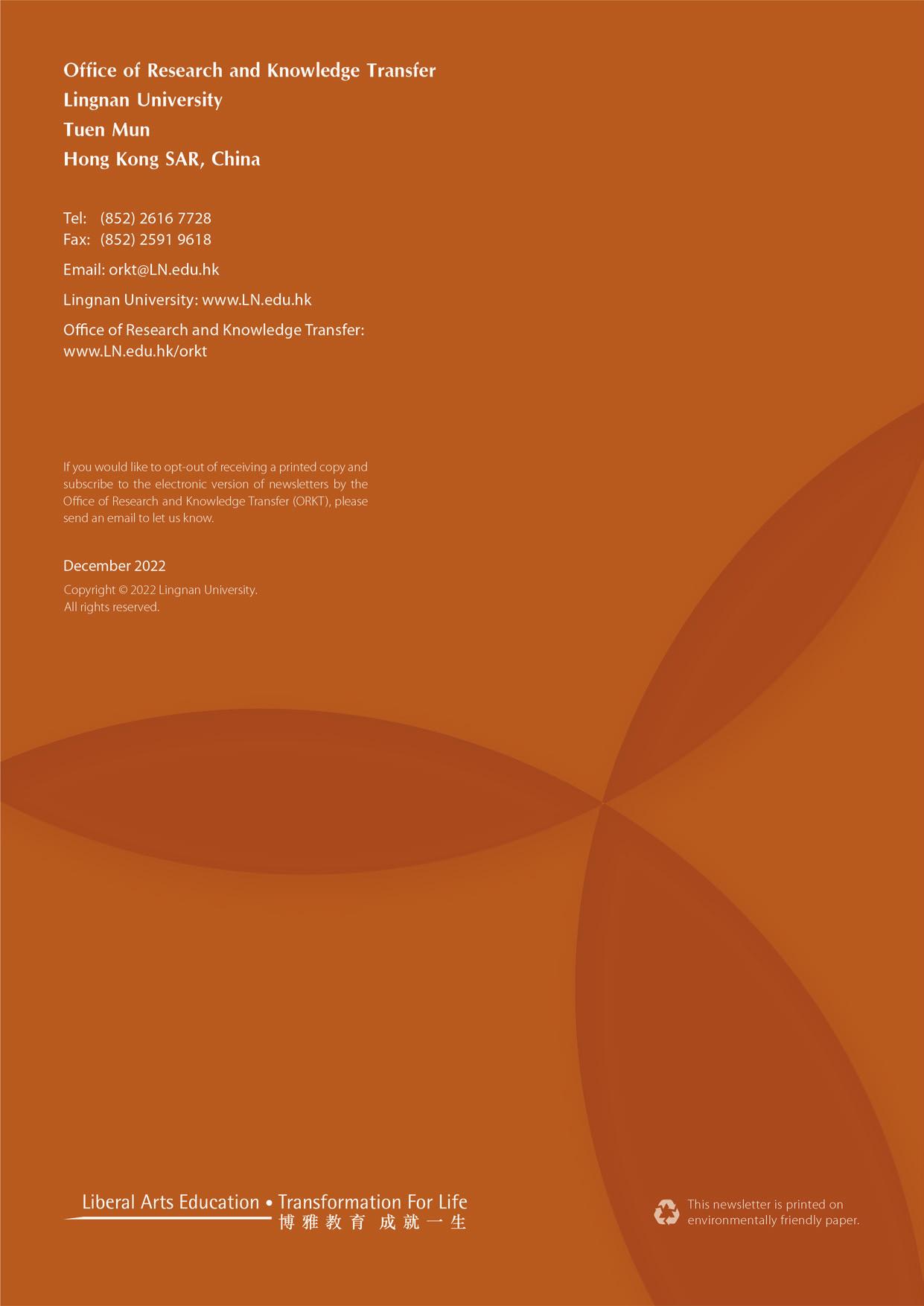




 Lam Man Tsan Chair Professor of Comparative Policy Lingnan University, Hong Kong
Lam Man Tsan Chair Professor of Comparative Policy Lingnan University, Hong Kong






 Lam Man Tsan Chair Professor of Comparative Policy Lingnan University, Hong Kong
Lam Man Tsan Chair Professor of Comparative Policy Lingnan University, Hong Kong
It is deep winter as I am writing this message. Similarly, we have been entrenched in the pandemic and are waiting for the arrival of spring, for this health crisis to subside and economic growth to follow. While we are re-energising our economy and community amidst multiple waves of COVID-19, wellness – covering not only physical health but also wellness in other aspects – has become a more prominent topic than ever before, including that in the workplace.
As a leading liberal arts institution aiming to drive social impact, Lingnan University (LU) has led recent studies that look into the modern working environment, and its elements such as employment conditions, employee well-being and work-life balance. This focus resonates with one of the United Nations’ Sustainable Development Goals (SDGs) as reflected in the theme of this issue of our newsletter – Decent Work and Economic Growth.
The objective of creating positive impact on the community is a driving force for us to offer innovative and quality training and research opportunities. In the past year, our knowledge transfer (KT) work in social projects and Continuing Professional Development courses rose significantly by 31% to $176 million with 72,000 beneficiaries.
The University has achieved outstanding results in the 2022/23 General Research Fund (GRF), Early Career Scheme (ECS), and Humanities and Social Sciences Prestigious Fellowship Scheme (HSSPFS) from the Research Grants Council. We have reached record highs both in the number of funded projects and in funding, with 37 projects and $16 million secured from the three schemes.
Out of the eight UGC-funded universities in Hong Kong, LU came second in the Humanities and Arts Subject Discipline under ECS with an application success rate of 59%, compared with the sector-wide average of 40%.
With regard to GRF, LU has shown an increase of 47% and 59% respectively in the number of funded projects and funding, ranking second with an application success rate of 54% in the Business Studies Panel as compared to the 43% sector-wide median.
LU has also secured a place in each of the highly competitive Early Career Award and HSSPFS, where only seven and ten projects respectively were granted across the sector this year.
These funding achievements represent the fruits of our efforts and research excellence. Let’s continue our great work together to sow the seeds for a better future.
Times Higher Education Impact Rankings 2022
Top10
3rd Quality Education
for two consecutive years
6th Decent Work and Economic Growth
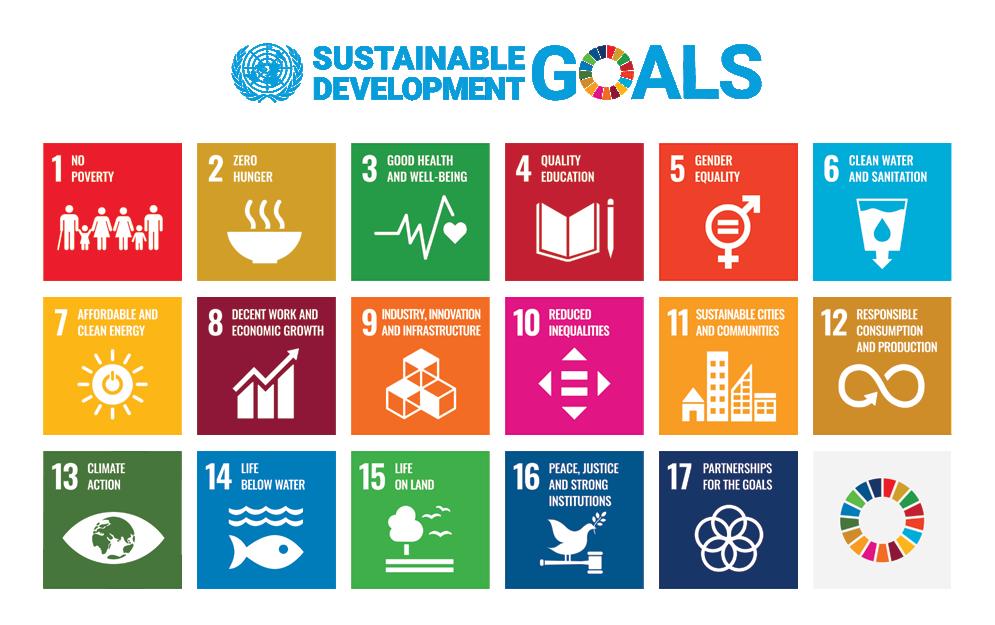
in Greater China region
overall impact rankings
in Greater China region
33rd International Faculty
QS World University Rankings 2022


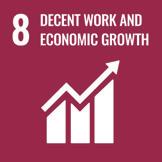
Over the years, Lingnan University (LU) has the impressive number of citations, accolades and a consistently high position in comparative rankings of tertiary institutions in Asia and around the world.
The Times Higher Education (THE) Impact Rankings 2022 placed LU in the top 10 for overall impact and 6th for work related to promoting “decent work and economic growth”, which is one of the UN’s Sustainable Development Goals (SDGs), within the Greater China region.

This particular SDG aims to facilitate sustainable and inclusive local economies, where people have decent job opportunities, fair pay, and the chance to create better lives for themselves and their families.
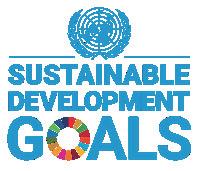
LU has adopted governance practices to ensure staff well-being and prepare graduates for the world of work, and is supporting important research into current economic models and modern workplace conditions. Topics range from corporate leadership, psychological health, labour welfare and the loss traditional jobs to income inequality and the poverty trap. Our scholars engage with society, inspire knowledge transfer and instigate real change.
For instance, from our Department of Management, Prof Nan WANG is exploring “Within-person dynamics of employee performance after disruption events”, something especially relevant after COVID-19. Prof Tingting CHEN is researching the phenomenon of employee silence at work and what it means for bosses, colleagues and team productivity. And Prof Yolanda Na LI is investigating the internet’s impact on employees’ daily work and outcomes, as well as how delivery couriers react to social media posts and frequent mistreatment by customers.
Exemplifying the interdisciplinary nature of much LU research, Prof Francis Yue Lok CHEUNG of the Department of Psychology is conducting a pilot study on occupational health differences between locals and new migrants from mainland China. And Prof Ngai PUN of the Department of Cultural Studies is spearheading a project on “Migration, mobility and labour”.
More relevant research projects and outputs

Occupational stress is a prevalent issue among higher education employees. The stressors can be different for different people, with organisational constraints (lack of training, cooperation among colleagues and/or explicit instructions and assignments), interpersonal conflict among employees and workload (long hours, deadlines) being the most common ones. Others may include the conflict between work and family life.
The demand for a more family-friendly environment has been growing. Family-friendly employment policies and practices (FEPPs) are programmes provided by companies or organisations designed to help employees strike a balance between their work and family roles. These can be policies like flexible work schedules, more maternity and paternity leave, and even additional birthday leave. The overriding objective of these policies and practices is to assist employees in managing their family responsibilities while also excelling at work by offering more choices when it comes to work arrangements that cater to the individuals’ needs.
Prof Oi Ling SIU, Chair Professor and Head of Department of Psychology, carried out a literature review on previous studies of FEPPs. The findings showed that employers in member states of the European Union, such as Germany, Austria and some southern European countries, more frequently offered extra statutory leave and childcare arrangements than employers in the US or Canada did. The benefits of FEPPs were shown in: a decrease in sickness absence, increased retention rates, a decrease in economic costs because of absenteeism or medical expenses, increased productivity, enhanced company attraction, and enhanced morale and commitment.
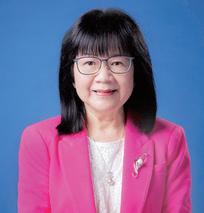
This suggests that FEPPs can lead to both tangible and intangible positive outcomes that are beneficial to employees’ work well-being (job satisfaction, physical and mental health), to companies (job performance, lower turnover rate, less absenteeism), and even to society in general in the form of reduced social costs such as workrelated illness and lost productivity.
However, at a sectoral level, numerous structural problems need to be overcome to provide better work-life balance. These include gender inequality, flexible work arrangements and organisational support
In recent years, there have been more advocates in colleges and universities, especially among administrative staff, for adopting FEPPS. Employees worldwide clearly demonstrate strong support for wider adoption of FEPPs and the range of benefits they can bring to institutions and their employees. We can encourage more higher education institutions to adopt FEPPs in:
• Initiating awards programmes to recognise good practices
• Organising “family-friendly workplace days” to promote the concept of work-life balance

• Providing incentives for departments/units to adopt more FEPPs in using a one-line budget
• Encouraging telework (work-from-home) arrangements for certain staff for certain days of the week
• Experimenting with changing the 5-day working week to a 4.5-day or 4-day week and reducing overall working hours
(Article originally written and published by Times Higher Education)
As inequality rises across Hong Kong and policymakers have been slow to directly tackle unemployment, Lingnan University’s Power-Up Programme is creating community support groups for young people to enhance their career prospects and improve working conditions.
Youth unemployment is a problem that few in Hong Kong society are willing to recognise and fewer still willing to take it on. Prof Ngai PUN, who is also Co-Director of the Institute of Policy Studies, wants to change this.
Prof Pun, who joined LU because the institution prioritises social impact, talks to the Times Higher Education that the institute’s strategy for youth unemployment is in two approaches. One involves raising awareness. Ahead of the International Day for the Eradication of Poverty, LU ran a public policy forum and a report documenting precarious working conditions – especially in the creative industries. “In Asian society, young people are usually portrayed as the hope of future and, hence, even if they encounter problems or difficulties, they are not able to voice it,” she says. “Most of them keep silent, and hence no social or labour policy is worked out to address their problem.”
The other approach involves young people directly, providing resources that enhance their employment prospects. Situated in a working-class neighbourhood of Hong Kong, LU launched its Urban Commons Incubator Summer Programme in 2022 to challenge the status quo and give young people more agency over their careers. “We provide pilot training for our youth Power-up Programme to nurture new initiatives and new hope for the young people,” she says. “During the summer of 2022, we provided incubator training on three types of commons: cultural commons, creative commons and education commons.”
According to a survey jointly conducted by our Institute of Policy Studies and Centre for Cultural Research and Development , and Oxfam Hong Kong on the employment status of Hong Kong youth, their average weekly working hours range from 43.11 to 46.67 hours. Some interviewees work up to 60 hours per week, significantly more than the international average of 40. In addition, 60% of young people reported that their employers did not compensate them for working overtime, and only 30% said they received an allowance or compensatory time off.
Many respondents have unstable jobs for an extended period of time, working as slashers, part-timers, and freelancers. They rarely sign contracts with their employers, nor having working hours specified, and the work culture of many industries means they work long periods of unpaid overtime.

These commons, and the practice of commoning, which emphasises shared needs and understanding, are inspired by workers’ cooperatives and offer alternative and selfsustainable approaches for young people to support each other. LU has nurtured six such groups so far and plans to consolidate them in the iCommon digital platform, which links these community partnerships across the city.
“Commons is a term that covers support groups, even individual work, workers’ cooperatives,” Prof Pun says. “Because in the UK, and in mainland China, you have a longer history of workers’ cooperatives. In Hong Kong, you have a much shorter history. Some of the names of the workers cooperatives are really old-style, traditional. We are not able to connect with young people. That is why we need to create these new concepts and terms to attract young people.”
Prof Pun is placing her hopes in the power of community organising. “Hopefully, the community can generate some kind of cultural empowerment programme so that they can rely on the community network for resources,” she says. “Then we can use those resources to create some kind of commons, and they can use this for finding meaningful work.”
(Article originally written and published by Times Higher Education)
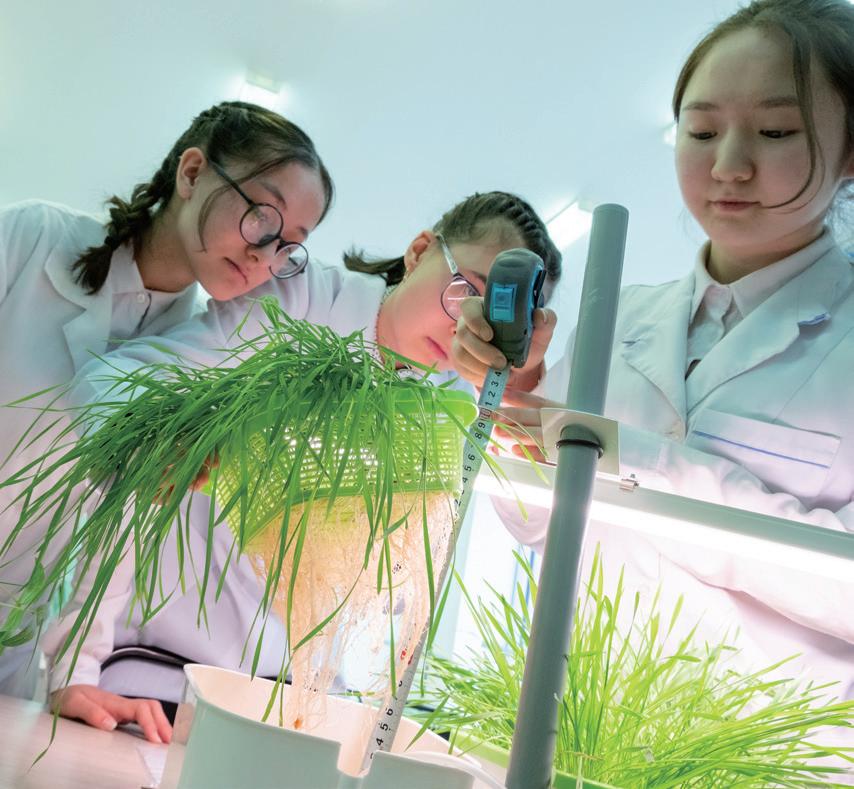
Prof Ngai PUN , Chair Professor and Head of the Department of Cultural Studies (CS), concluded that young people in Hong Kong have precarious jobs, no employment contracts, long working hours, and low wages. “Hong Kong should catch up with international standards in legislating working hours as we are obviously lagging behind neighbouring countries and cities. If the young hold the future of society, we should explore ways to properly deal with the employment problem they are facing,” said Prof Pun.
Prof Shi Chi LEUNG, Research Assistant Professor of CS, pointed out that employment instability for young people has a profound effect on their physical and mental health, as well as their future expectations. Many young people who participated in the indepth interviews reported that after living expenses, they cannot save enough to purchase a home or plan for the future.
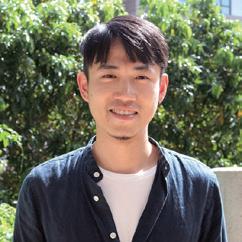
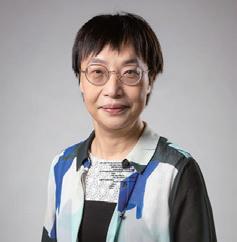
Arecent study “Hong Kong residents’ view on reopening land borders with Mainland” conducted by the Institute of Policy Studies (IPS) showed that Hong Kong citizens were greatly affected by the quarantine measures implemented by the mainland China government for inbound travellers.

Nearly 65% of respondents said their income was reduced, 70% found their jobs were affected, and 30% had lost their jobs. 70% of respondents hoped that the government will provide medical subsidies and telemedicine services for citizens stranded on the mainland, and 65% said they would be happier with the government if they could travel quarantine-free to the mainland.
Project leader, Prof Joshua Ka Ho MOK, Vice-President, said the study shows that quarantine measures at land borders have affected both citizens’ livelihoods and lives. “Most Hong Kong citizens look forward to the normal operation of land borders with the mainland as soon as possible so that they may resume family visits, travelling and business. The government will adopt various measures, such as improving communications with various mainland government offices, and the cross-border medical test and tracking system to allow reopening.”
Project member Prof Genghua HUANG , Research Assistant Professor of IPS, pointed out that many long-term public healthcare users, especially elderly ones, are stranded on the mainland, it is difficult for their health treatment to be maintained. He suggested the Hospital Authority of Hong Kong to provide telemedicine or video consultations for them, so that they can receive medical treatment from Hong Kong during the pandemic.
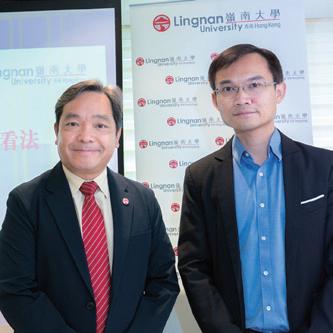
In celebrating the 25th Anniversary of Hong Kong’s return to the sovereignty of China, our Hong Kong Institute of Business Studies launched the first-ever “Hong Kong-Chinese Mainland Economic Integration Index (1990-2019)”

The results indicate that the two economies have become highly integrated and interdependent over time. The findings reveal the positive effect of economic integration on the Hong Kong economy, while highlighting significant challenges to economic development and governance in the SAR.
Prof Geng CUI , Professor of the Department of Marketing and International Business , said that the economic integration between Hong Kong and mainland China helps eliminate barriers to trade and investment, liberate the factors of production, and encourage efficient resource allocation and production among economic entities. Prof Cui added that these findings provide quantitative information on the economic integration and other socio-economic indicators as well as public sentiment towards the government and society. He believed that the newly established index will serve as an important reference for policymakers and researchers as they formulate and analyse public policies.
The full report on the “Hong Kong-Chinese Mainland Economic Integration Index (1990-2019)” has been published in the Asia Pacific Business Review. It has also been widely covered by more than 130 media venues in the United States, Canada, Germany, Italy, Romania, Guadeloupe, Nigeria, India, New Zealand, Singapore and Viet Nam.

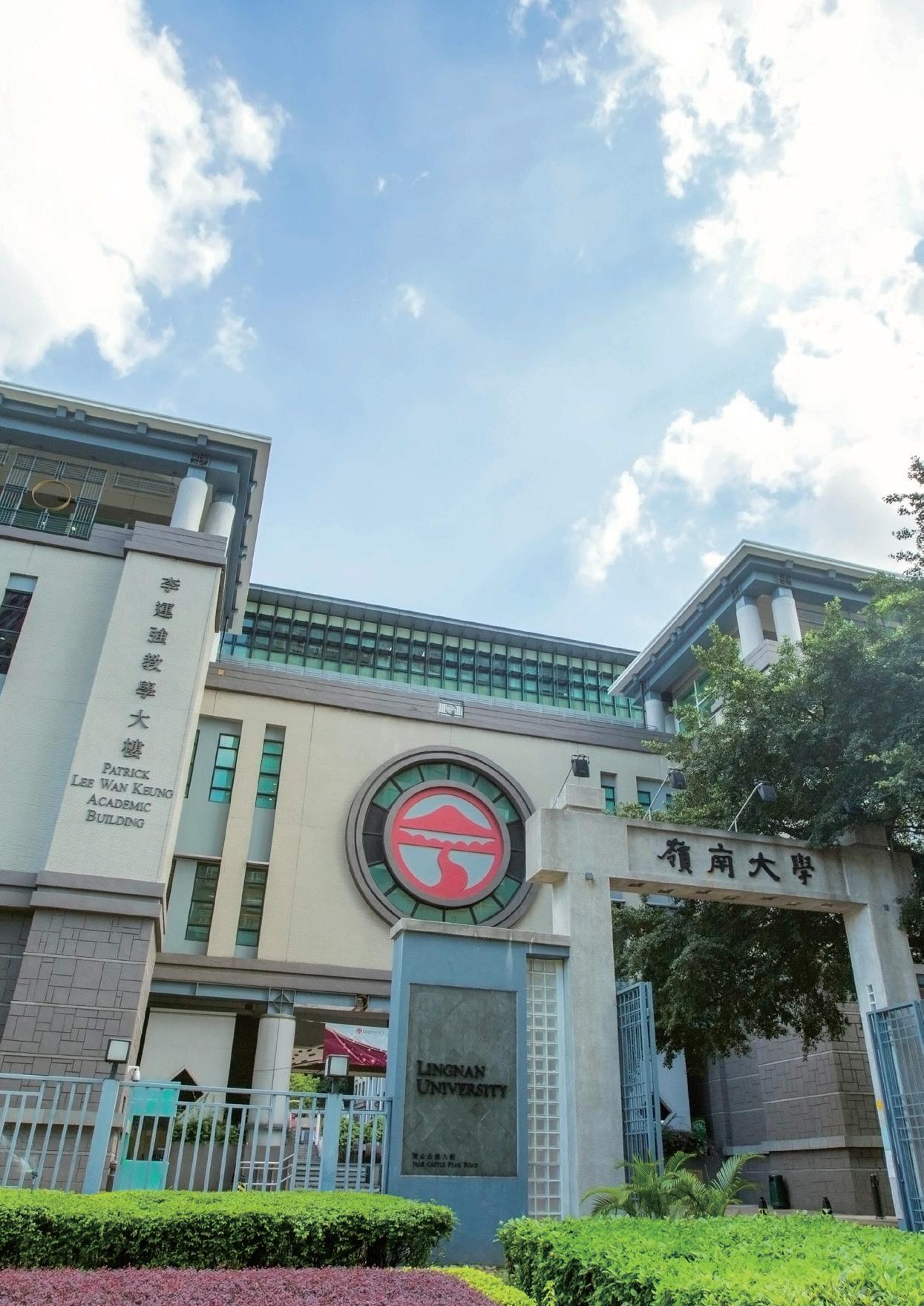
LU Professors Roberto CASTILLO BAUTISTA , Assistant Professor of the Department of Cultural Studies; Lianjiang LI , Professor and Head of the Department of Government and International Affairs; Joshua Ka Ho MOK , Vice-President and Dean of the School of Graduate Studies; Ngai PUN , Chair Professor and Head of the Department of Cultural Studies; Oi Ling SIU, Lam Woo & Co Ltd Chair Professor of Applied Psychology and Head of the Department of Psychology; Dean TJOSVOLD, Emeritus Professor of the Department of Management; Man Leung WONG , Professor and Head of the Department of Computing and Decision Sciences; Haoran XIE, Associate Professor of the Department of Computing and Decision Sciences; the late Professors Michael FIRTH and Ray FORREST are in the World’s Top 2% Scientists released by Stanford University in the US recently.
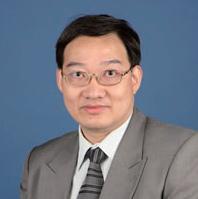
The recognition acknowledges the research and academic strengths of LU scholars, and the impact each of the scholars has made on both academia and society. Stanford’s large database adopts a composite indicator based on standardised citation metrics, including the number of citations, h-index (measuring scientific research output) and co-authorship.
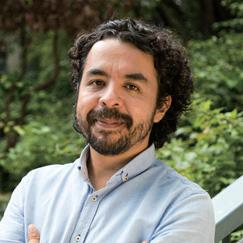
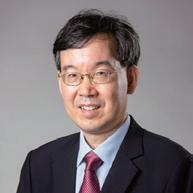
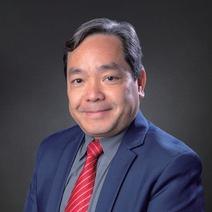
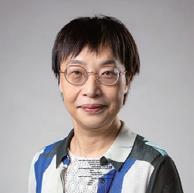
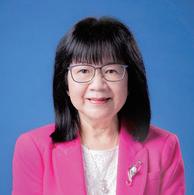





It should be no surprise that Prof Joshua Ka Ho MOK was named among the top 2% of the world’s most cited scientists in recent studies by Stanford University.
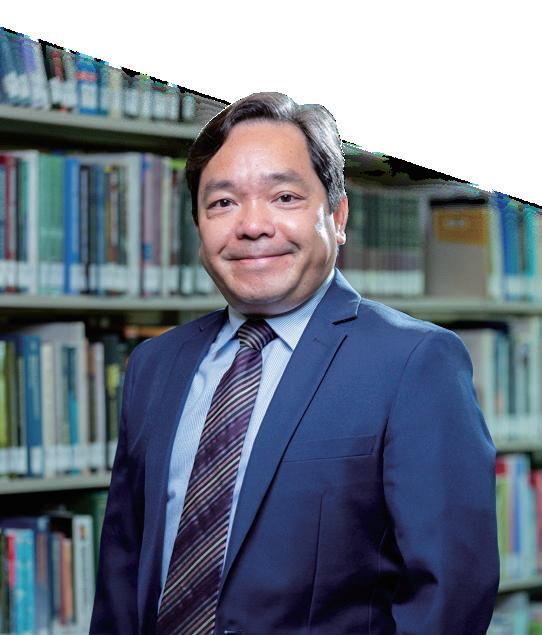
Over the years, he has been an influential voice and published extensively in fields ranging from comparative education policy to social development in contemporary China and East Asia. In the process, he has brought new insights, thought leadership and, where appropriate, a more entrepreneurial approach in policy research and institutional governance. In so doing, he has proved the undoubted value of working within and across the disciplines of sociology, political science, and public and social policy.
The latest accolade, though, is just one of many that LU’s Vice President has received in the course of a notable career, which has seen him always ready to push boundaries, encourage debate, and explore new themes.
“My recent research focuses on the age-friendly city and its impact on productive ageing,” says Prof Mok, who is also the university’s Lam Man Tsan Chair Professor of Comparative Policy and Dean of the School of Graduate Studies. “But I have also done research and published on international student mobility, especially in the context of COVID-19, and the emergence of new forces in geopolitics, soft power and issues relating to knowledge diplomacy. These areas are really fascinating to me.”
In fact, such interests can be traced all the way back to one of Prof Mok’s earliest career objectives: to serve the wider community, perhaps in a government or civil service role.
To that end, he enrolled for an undergraduate degree in public and social administration offered by City University of Hong Kong – the first of its kind – and later went on to read for both a master’s and a PhD in sociology at The Chinese University of Hong Kong and London School of Economics.
I have never changed my original dream of serving others, but I adopted a different pathway.
When approaching anew topic, his first requirement is to identify a “window” that allows a way in. Often, he has found this in the field of international and comparative education, which typically offers a great platform for research, teaching, and interdisciplinary studies.
In particular, it affords the chance to consider relevant issues from multiple viewpoints. And this, in turn, makes it possible to assess more clearly how specific policy changes can have an impact on everything from the number of mainlanders studying overseas to graduate employment, student well-being, and innovations within higher education.
“My team and I adopt mixed methods to generate first-hand data for analysis,” he says. “In this way, we can achieve evidencebased results which reflect a comparative and international perspective.”

Those achievements have seen Prof Mok honoured as a leader by the World Council of Comparative Education Societies (WCCES). Indeed, the latest edition of the council’s prestigious journal, Global Comparative Education, highlighted the influence he exercises through his research and practical works.
It also took due note of his extensive scope, creative outlook, and comprehensive understanding of emerging trends in China and the Asia-Pacific region.
“I enjoy working and collaborating with scholars from different parts of the globe,” says Prof Mok, who was named Chang Jiang Chair Professor, a position of national standing, by the Chinese Ministry of Education in 2010. “As a result, I have been able to establish LU’s links with partners like the Centre for Higher Education based in Oxford and to promote recognition of the UN’s Sustainable Development Goals within the tertiary-level curriculum.”
Those forward-looking, entrepreneurial instincts have also been apparent in series of other highly respected initiatives. For instance, Prof Mok is not just widely published, but also the founding editor-in-chief of the Journal of Asian Public Policy, as well as Asian Education and Development Studies
“Regarding the former, my dream at the outset was to make it a leading journal in the field of policy studies with a focus on Asia,” he says. “I am happy that it has gone on to become one of the top journals in the field, having been ranked as an SSCI Q1 journal. I’m very proud of that.”
As a social scientist, I am making use of knowledge and research to analyse important social problems and potentially make a contribution to the policy debate and the search for solutions.

The dramatic upheavals of the last few years, some of them linked directly to the COVID-19 pandemic, others the result of evolving superpower rivalries, economic realignment and emerging geopolitical forces, have provided plenty of scope to revisit long-held assumptions.
In academic circles, all the changes have naturally spurred informed debate and new research into both the causes and implications of the shifting balance of global power. There are big issues to address, from China’s new assertiveness on the international stage to India’s role as a high-tech hub, the likely influence of new trade blocs, control of essential commodities, and potential flashpoints if any country is considered to have stepped out of line.
And all that is grist to the mill for Prof Shalendra SHARMA, Lee Shau Kee Foundation Chair Professor of Political Science at the Department of Government and International Affairs, who made his name investigating such complexities and is now viewed as a leading authority on the push-and-pull factors which are reshaping the world around us.
“In recent years, my research interest has focused on two interrelated questions,” says Prof Sharma, a political economist by training, who completed his PhD at the University of Toronto.
The effect of the COVID pandemic, he notes, has clearly exacerbated these trends. Of particular concern, therefore, is the extent to which the “growing unmediated expression of the popular will” will have a major and ongoing impact on long-established democratic institutions, public policy, and forms of governance in countries seen as liberal democracies.

Firstly, there are the fundamental challenges facing democracies today, especially in the United States. My goal is to better understand the root causes of political fragmentation and the resultant ‘democratic backsliding’, as reflected in the rise of populism and the regression towards what are called ‘illiberal democracies’.
“Secondly, I’m considering what the future holds for the post-war liberal international political and economic order,” Prof Sharma says. “The order’s key architect and defender is the United States, the world’s most powerful liberal democracy. The central challenger is China, the world’s most powerful autocracy, which not only sees liberal ideals as an existential threat to its legitimacy, but also claims that China now represents a successful alternative to the West. We need to understand what are the implications of this seemingly resurgent competition between great powers and what it will mean for the emerging world order.”
One consistent theme in his research is the high-stakes inter-play involving China, India and the US. He first explored this in his much-praised book published by Cambridge University Press in 2009 – China and India in the Age of Globalization: A Comparative Political Economy, which won the Alpha Sigma Nu Book Award.
And he followed that in 2018 with the equally insightful Prosperity with Inequality: A Comparative Political Economy of the United States, China and India. At this stage, he believes, the way ahead depends on these three giants finding a way to collaborate on economic relations, which will bring obvious mutual benefits, while accepting there will still be areas of competition on security issues as China, in particular, continues to flex its muscles.
“In my view, as things develop, India and the US will come even closer together as both try to balance China’s growing power,” he says.
Another area of special interest for him is how best to build a stronger global economy. It is only too clear that the current system, along with the institutions that drive it, is undeniably tilted in favour of the richer nations, the haves as opposed to the have-nots.

Therefore, if the UN’s 17 Sustainable Development Goals are to make any headway, it is essential to support real, substantive change. Prof Sharma previously tackled the subject in his 2014 book Global Financial Contagion: Building a Resilient World Economy after the Subprime Crisis. But he is well aware that further bold measures are necessary in the wake of COVID-19.
“Governments around the world increased their expenditures drastically during the pandemic,” he says. “As a result, rising deficits and public debt have reached unprecedented levels. There are already growing inflationary pressures. This does not necessarily mean there is a recession ahead. But, then again, if the war between Russia and Ukraine continues, and oil prices go out of control, a worst-case scenario is possible.”

When modesty permits, most academics engaged in breakthrough research quietly admit to two broad ambitions. One is to have the value of their work recognised by peers and institutions around the world. The other is to see their findings have a real impact, whether in terms of knowledge transfer, commercial potential, or adding in some way to the common good.
On both counts, Prof Man Leung WONG, Head of Department of Computing and Decision Sciences, has clearly made it.
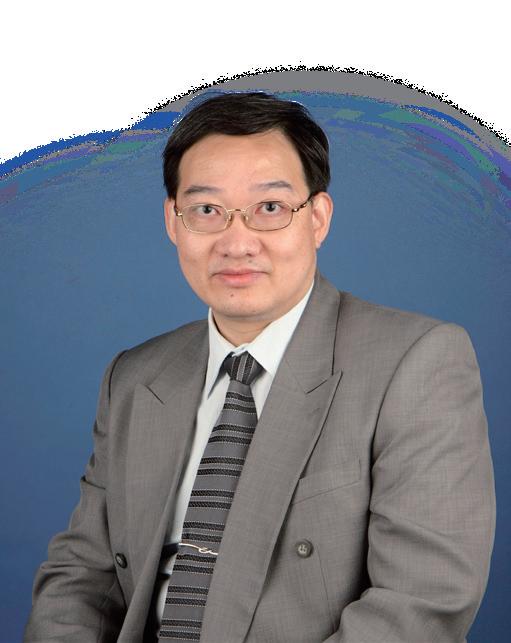
Thanks to the range and originality of his publications, he is now among the world’s top 2% of most-cited scientists, according to a respected 2021 study compiled by Stanford University. And, with his various projects and prototypes, such as those designed to integrate AI techniques and machine learning (ML) to improve education, he is opening up new pathways for students of different ages and abilities and, in the process, helping to transform lives for the better.
“The field of computer science is both active and fast-expanding and has become an essential component of the modern world,” says Prof Wong, who was a recent joint recipient, with LU colleague Prof Haoran XIE, of two top awards at the 7th International Invention Innovation Competition in Canada for work on a personalised vocabulary learning system. “I get to design innovative solutions for today’s problems, although my primary focus is exploring computational AI strategies to mimic human intelligence.”
Over the years, his research has taken in everything from big data analytics and Bayesian networks to data mining and fuzzy reasoning.
But as one of the first academics to look at grammar-based genetic programming (GBGP), he is currently breaking new ground with an AI-type system using logic and grammar to help express “context-sensitive information and domainspecific knowledge”. The aim is to expedite learning in schools and universities and, step by step, keep improving the quality of the programs that are created.
“Conducting research gives me the opportunity to follow my interests, work with the younger generation, and push myself in new and different ways,” he says. “It also enables me to share with others in the field, so that collectively we can contribute to human progress and help society at large.”
From an early age, Prof Wong was fascinated by the fact that the programs held on a floppy disk could accomplish so much. However, his subsequent choice of degree and career path was ultimately inspired by the thought that, one day, certain kinds of computer might be able to perform tasks in a manner that was both intelligent and “human-like”. That was where he wanted to be involved.
“When I was growing up, microcomputers were still in their infancy,” he says, noting that now almost everything being developed in the field of technology seems to incorporate some form of artificial intelligence or machine learning. “This makes it possible for individuals to do more by working with ‘intelligent’ software, and it gives technology a kinder, more approachable face.”
He is convinced that widespread application of these advances will continue to transform transportation systems and accepted ways of working in medicine, engineering and the world of business, as well as design, e-commerce and communication.

“There is the potential to make our day-to-day lives more efficient and effective, thanks to AI that can perform several tasks at once,” Prof Wong says. “But I realise too that the implications of AI and ML – and their possible effects on the future – are the subject of heated debate around the world. Therefore, when deciding on research projects, I take time to consider the likely consequences any initiative will have in the long run and believe in having the confidence to ask the correct questions in seeking answers from peers, experts and the literature. When evaluating which projects to pursue, we are aiming for breakthrough innovation with the potential to make the world a better place.” Aware that the results of certain studies may turn out to have commercial possibilities, Prof Wong and his colleagues may also set out an early-stage business plan to interest likely partners.
“These plans are all grounded in reality, with the goal of developing products, services and other business-related ventures based on our results,” Prof Wong says.
In the not too distant future, I want to focus my research efforts on meta-learning, using my ‘probabilistic GBGP’ technique to improve the structures of deep neural networks. This would provide new benefits and insights to enhance learning systems and algorithms.
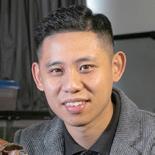
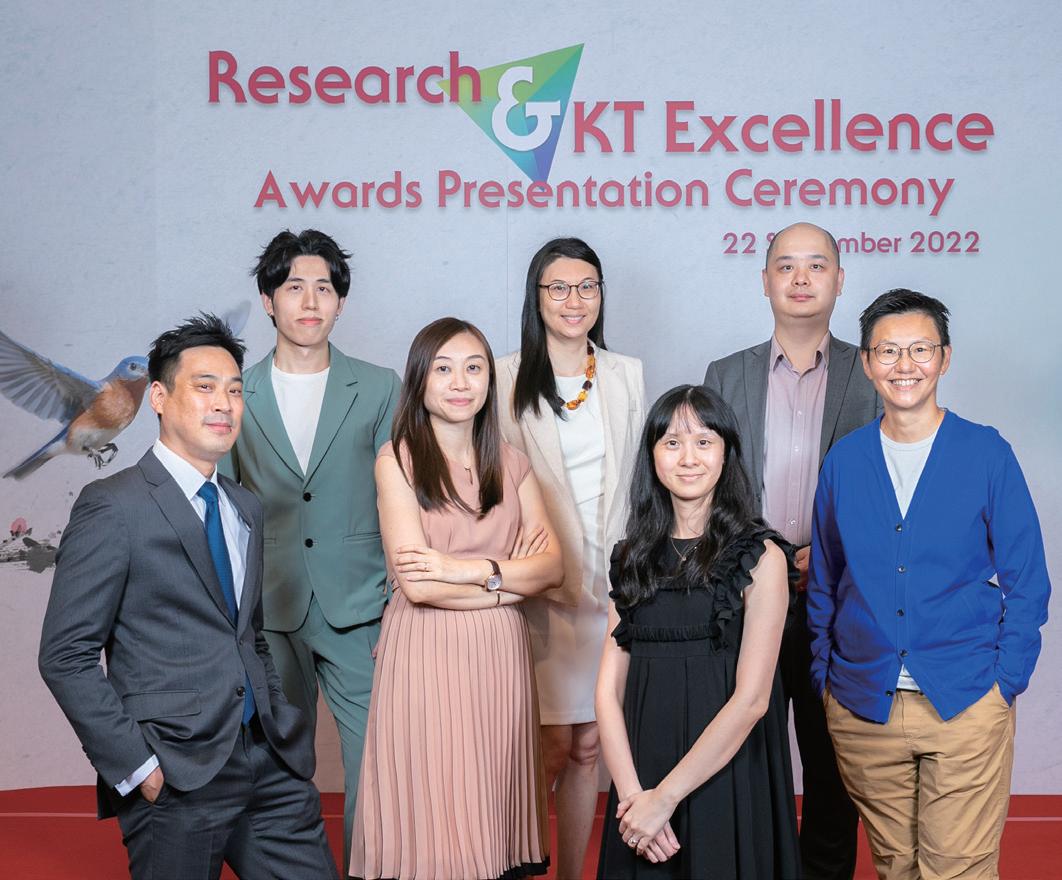
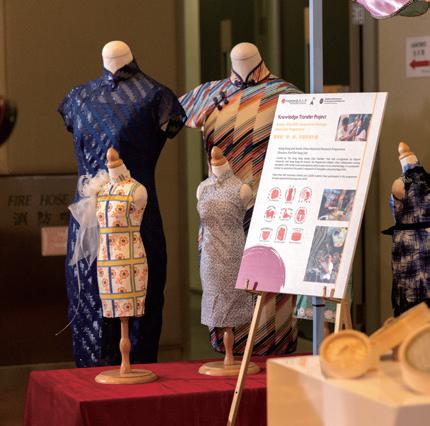
Lingnan University successfully held the Research & Knowledge Transfer Excellence Awards Presentation

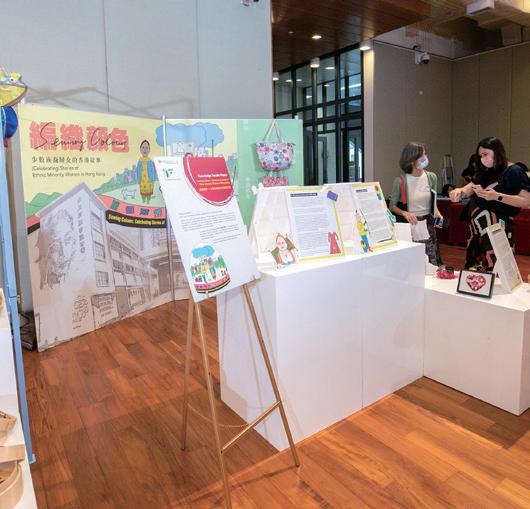


Ceremony 2022 cum Knowledge Transfer & Entrepreneurship Projects Exhibition in September 2022. More than 140 participants from our staff, students and alumni had a joyful time with our award-winning faculty members for their achievements in scholarly research and efforts in knowledge transfer within the academic community and across larger communities.
Honorable guests attending the event included Research Grants Council Chairman Prof Yuk-shan WONG ; University Grants Committee Secretary-General Prof James Tuck-hong TANG; LU Council Chairman Mr Andrew Cho Fai YAO and Council Deputy Chairman Mr Augustine Ho Ming WONG; Council and Court members Dr Wing Huen FOK and Ms Carrie Ka Lai LEUNG; and Ms Jessica TAM, Head of Social Enterprise Business Centre, The Hong Kong Council of Social Service.
Prof Denise Tse Shang TANG
Department of Cultural Studies
Prof Haoran XIE
Department of Computing and Decision Sciences
Prof Jonathan FONG Science Unit
Prof Nga Man HO
Department of English
Prof Yiwei LI
Department of Marketing and International Business
Prof Yik Hei SUNG Science Unit
Prof Victoria Wai Lan YEUNG
Department of Psychology
Prof Yi HUANG
Department of Psychology
Research & Knowledge Transfer Fund Award - RGC Grant 2021/22
Senior Research Fellow Scheme
Prof Darrell Patrick ROWBOTTOM
Department of Philosophy
Prof Haomin GONG
Department of Chinese
Prof Mark Andrew HAMPTON
Department of History
Prof Darryl Cameron STERK
Department of Translation
Prof Xiaofeng ZHAO
Department of Finance and Insurance
Prof Victoria Wai Lan YEUNG
Department of Psychology
Humanities and Social Sciences
Prestigious Fellowship Scheme
Prof Yueh Yu YEH
Department of Digital Arts and Creative Industries
General Research Fund
Prof Tzu Pin HSU
Department of Chinese
Prof Wai Wai CHIU
Department of Philosophy
Prof Li Ping LIANG
Department of Computing and Decision Sciences
Prof Geng CUI
Department of Marketing and International Business
Prof Larry Dongxiao QIU
Department of Economics
Prof Meanne Ching Man CHAN
Wofoo Joseph Lee Consulting and Counselling Psychology Research Centre
Prof Peter Michael HAWKE
Department of Philosophy
Prof Aleksandar STEVIC
Department of English
Prof Bo LI
Department of Translation
Prof Jiang CHENG
Department of Finance and Insurance
Prof Jocelyn Li LIN
Department of Psychology
Prof Hon Fai CHEN
Department of Sociology and Social Policy
Prof Jonathan FONG Science Unit
Prof Clark Cong CAO
Department of Marketing and International Business
Prof Tat Chor AU YEUNG
Department of Sociology and Social Policy
Prof Dongjin HE
Department of Marketing and International Business
Prof Anthony Yin Kun LAU Science Unit
Prof Denise Tse Shang TANG
Department of Cultural Studies
General Research Fund
Prof Lisa Yuk Ming LEUNG
Department of Cultural Studies
Prof Carmen Chung Man TSUI
Department of History
Prof Ying MAO
Department of Accountancy
Prof Weixin SHANG
Department of Computing and Decision Sciences
Prof Jingyuan LI
Department of Finance and Insurance
Prof Clark Cong CAO
Department of Marketing and International Business
Prof Francis Yue Lok CHEUNG
Department of Psychology
Prof Tianle ZHANG
Department of Economics
Prof Shi Chi LEUNG
Department of Cultural Studies
Prof Ethan Erich BRAUER
Department of Philosophy
Prof Yu-Chieh LI
Department of Digital Arts and Creative Industries
Prof Chi KWOK
Department of Government and International Affairs
Prof Do Young OH
Prof Vincent Sueh Han LEUNG
Department of History
Prof Daniel Graham MARSHALL
Department of Philosophy
Prof Rui WANG
Department of Accountancy
Prof Nicholas Zhiyao CHEN
Department of Finance and Insurance
Prof Tao SUN
Department of Finance and Insurance
Prof Sebastian Yu Ho CHUNG
Department of Marketing and International Business
Prof Victoria Wai Lan YEUNG
Department of Psychology
Prof Lianjiang LI
Department of Government and International Affairs
Prof Peter Evan HAMILTON
Department of History
Prof Elton Wing Ching CHAN
Department of Philosophy
Prof Hong ZENG
Department of Digital Arts and Creative Industries
Prof Jenny Tuen Yi CHIU
Department of Sociology and Social Policy
School of Graduate Studies / Institute of Policy Studies
Prof William Guanglin LIU
Department of History
Prof Kenny Zhenpin LIN
Department of Accountancy
Prof Mingming LENG
Department of Computing and Decision Sciences
Prof Jiang CHENG
Department of Finance and Insurance
Prof Xiaofeng ZHAO
Department of Finance and Insurance
Prof Ling PENG
Department of Marketing and International Business
Prof Junji XIAO
Department of Economics
Prof Dickson Chak Kwan CHAN
School of Graduate Studies / Institute of Policy Studies
Prof Adam Lee BRADLEY
Department of Philosophy
Prof Qingyang LIN
Department of Translation
Prof Grace Ga-eun OH
Department of Marketing and International Business
Prof Ruby Yuen Shan LAI
Department of Sociology and Social Policy
Prof Weiyan XIONG
School of Graduate Studies / Institute of Policy Studies
Prof Paulina Pui Yun WONG
Science Unit
Six researchers of Lingnan University were honoured at the Research Grants Council (RGC) Award Presentation Ceremony held in November 2022 for their outstanding achievements in research.
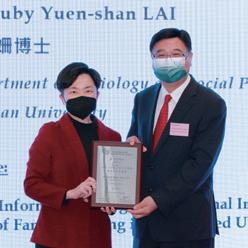
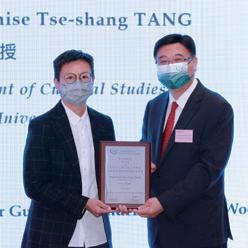
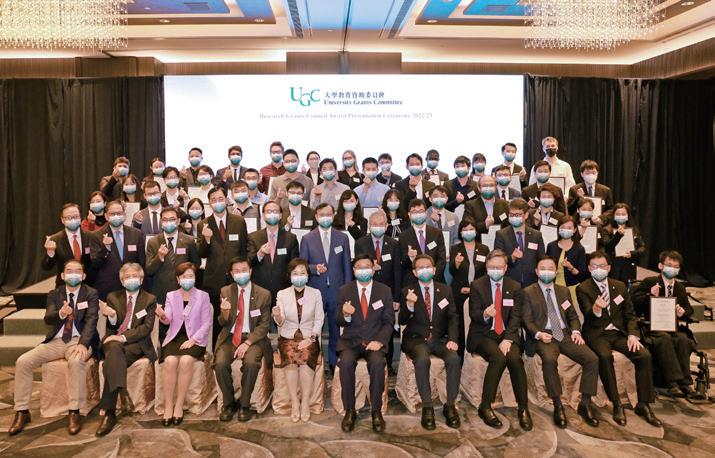
Dr Daniel PALLIES of Department of Philosophy, Dr Zeying WU of Department of Government and International Affairs, Dr Francisco Javier OLIVOS RAVE of Department of Sociology and Social Policy and Dr Edward Kwabena AMEYAW of School of Graduate Studies received RGC Postdoctoral Fellowship Scheme (PDFS) awards, which encourage worldwide postdoctoral researchers to take up a university career to strengthen Hong Kong’s research talent.
Prof Denise Tse Shang TANG of Department of Cultural Studies received the Humanities and Social Sciences Prestigious Fellowship Scheme (HSSPFS) award for her project ‘Not Just Another Guy: Transgender Men in the Workplace’, and Prof Ruby Yuen Shan LAI of Department of Sociology & Social Policy was given the Early Career Award (ECA) for her Early Career Scheme (ECS) project ‘Gendering Informal Housing: Intersectional Inequalities and the Resilience of Families Living in Subdivided Units in Hong Kong’. It is gratifying for LU to have secured a place in each of the highly competitive HSSPFS and ECA, where only ten and seven projects respectively were granted this year across the sector.
Prof Yusuf Ikbal OLDAC, Research Assistant Professor of the School of Graduate Studies has been awarded the Society for Research into Higher Education (SRHE) Newer Researchers Prize for his research proposal entitled “Scientific collaborations between the United Kingdom and Middle Eastern and North African countries in the post-Brexit and post-pandemic world”. He will receive funding to carry out the project, and join the Society’s Research and Development Committee for one year as a new researcher member starting from January 2023.
The SRHE is an independent UK-based international society which aims to improve the quality of higher education. “I felt really excited as SRHE is a globally well-known society in the field of higher education and they only grant the award to two or three people every year. I would like to thank LU for providing a supportive environment to do quality research, and I am grateful to my colleagues at the office for creating a positive working environment,” he said.
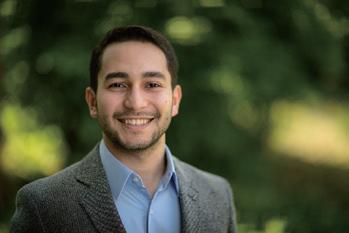
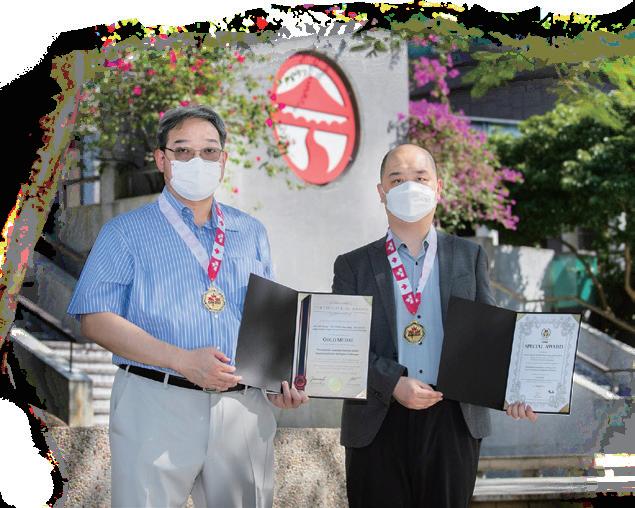
In November 2022, our President-Designate, Prof S Joe QIN , received the prestigious Computing in Chemical Engineering Award given by the American Institute of Chemical Engineers (AIChE) Computing and Systems Technology Division (CAST) at their annual meeting in Phoenix, Arizona, for developing novel methods and pioneering applications of process monitoring and data analytics, and unifying methods and applications of model predictive control theory.
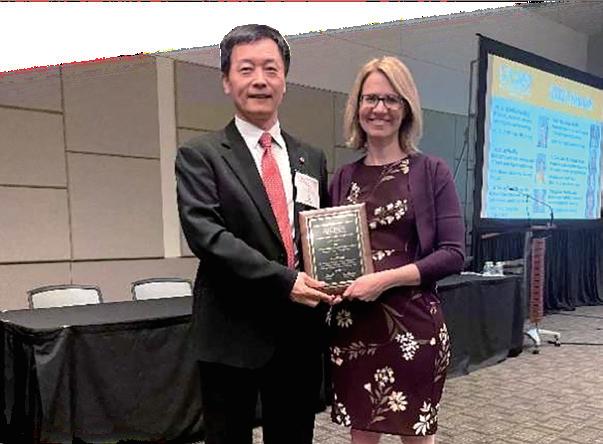
Prof Qin is the first scholar educated in mainland China to receive the award since its inception over 40 years ago.
“As President-Designate, I am very honoured to receive this international award and share it with Lingnanians,” he says. “We should believe in and be grateful to the fairness of the international academic system that recognises outstanding contributions no matter where you are and who you are.” Prof Qin delivered a 40-minute speech at the award ceremony sharing his academic journey of three decades with over 100 attendees from all over the world.
Prof Qin believes that as a leading liberal arts university in the region, Lingnan University and the LU community will play a key role in the development of the GBA. “Global perspectives in humanities and culture are necessary to make the GBA a truly international hub for talent and innovation, and Lingnan University is in a unique position to address this requirement.”
Prof Qin will succeed Prof Leonard K CHENG who retires as President of the University in 2023.
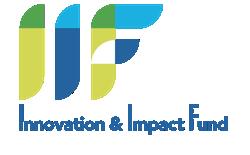
Lingnan University has been putting great emphasis on research and knowledge transfer (KT) for social good. A KT project “Personalised vocabulary learning system based on artificial intelligence techniques” by our scholars Prof Man Leung WONG and Prof Haoran XIE of the Department of Computing and Decision Sciences collaborating with Prof Di ZOU from The Education University of Hong Kong, an integration of AI techniques and education, was awarded the Gold Medal and International Special Award at the 7th International Invention Innovation Competition in Canada (iCAN) 2022 , organised by the Toronto International Society of Innovation & Advanced Skills (TISIAS).
Supported by LU’s Innovation and Impact Fund organised by the Office of Research and KT, the project aims to provide learning paths and recommend personalised learning tasks for students. The system facilitates personalised vocabulary learning for students in universities and secondary schools.

2021/2022
2,888
65
5,206 Beneficiaries Students Engaged Faculty members Engaged
44
5322
I & E Partners Hours of Incubation
Incubated 18 Start-up projects and social enterprises Workshops on Design Innovation
25
Developed two inventions: CREW Wheelchair Air-Purifier for Sub-divided Households Version 3.0
With the fourth industrial revolution well under way, we are often told of the merits of STEM education. Communities around the world report an employment gap in science, technology and engineering industries – and universities are under pressure to produce more graduates in these fields as a result.
But what if humanities and arts graduates could be equipped with the necessary tools and understanding of technology? Not only would it help to plug the talent gap, but it could also bring a broader wealth of ideas-to-efforts to create a better and more liveable future.
This was the theory proposed five years ago by Prof Albert KO, an engineer, entrepreneur and humanitarian worker who teaches at Lingnan University.
“We don’t need to train more engineers to solve global problems,” Prof Ko talks to the Times Higher Education. “What we need are people who can work with engineers – social workers, lawyers, policymakers – and to bring them together to solve important problems effectively.”
Today, Prof Ko serves as Director of the Lingnan Entrepreneurship Initiative (LEI), which engages non-STEM students to learn basic technology skills for real-world applications. He is also the Director of Service Learning as well as postgraduate Programme Director of social entrepreneurship and innovation management at the university.
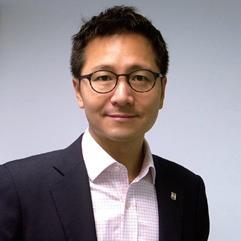
Each year, the LEI programme involves about 2,500 students and community members in entrepreneurial, multidisciplinary humanitarian projects that have a focus on inclusivity. “We are designing technology to benefit people who can’t necessarily afford it,” Prof Ko says.
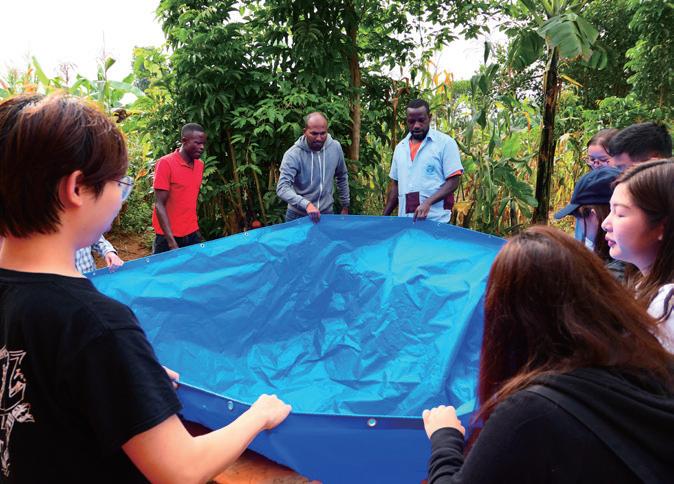

Students at Lingnan University are applying multidisciplinary skills to wide-reaching community projects.
Every student at Lingnan University must complete 30 hours of service learning to graduate. This can be undertaken through a variety of means, for example by designing a useful tool or organising outreach projects for communities.
The university works with a network of NGOs to form mutually beneficial partnerships: “They know that we aim to solve problems that are often not profitable enough for any commercial solution,” Prof Ko explains. “They will often come to us and propose a project and ask us whether we could help.”
One such project undertaken by service learning students at LU has helped to develop a low-cost water tank in Uganda.

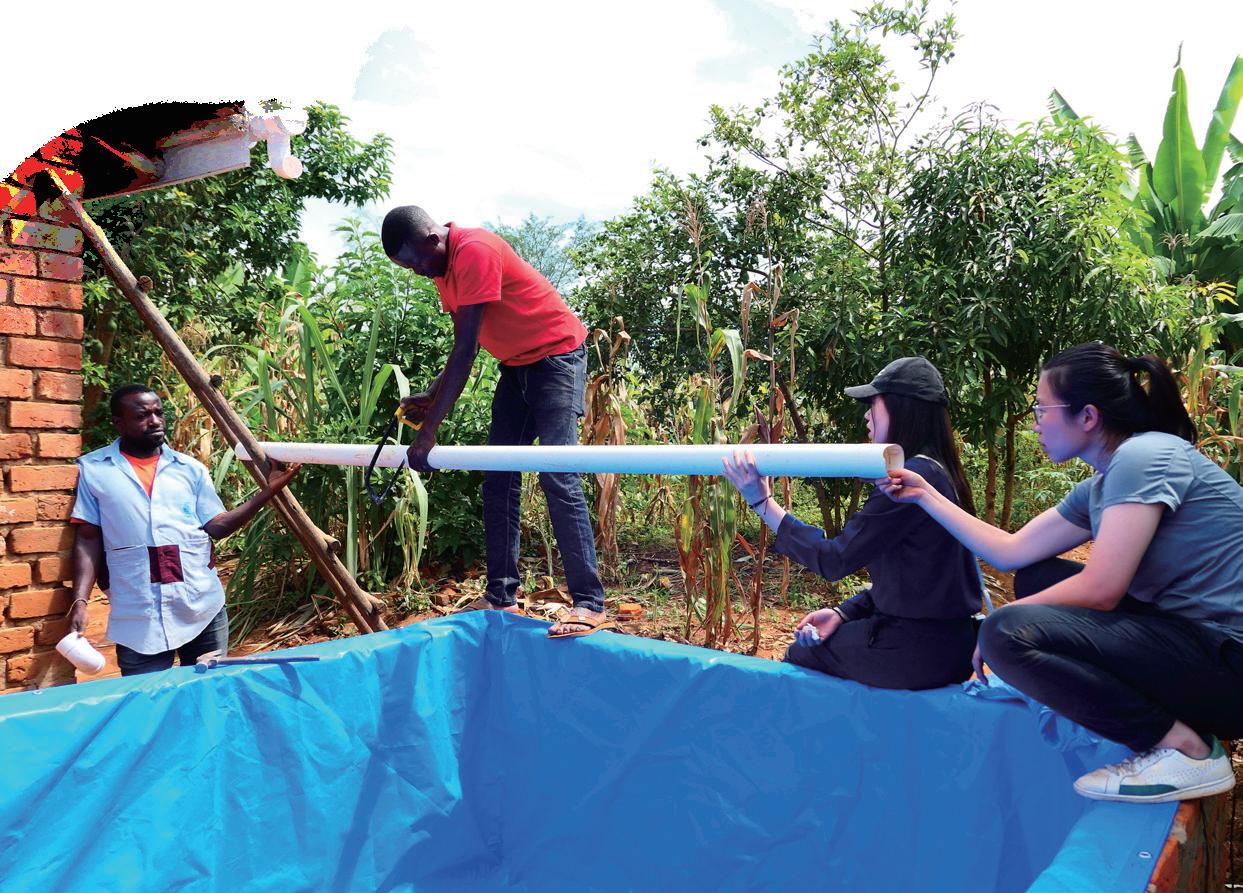
As part of the Global Liberal Arts Alliance, LU hosts students across the network to undertake campus programmes for two weeks over the summer. That was paused during the Covid-19 pandemic, but “the plan is to resume it as fast as we can”, Prof Ko says.
LU has a strong alumni network, which is helping to support the humanitarian technology programme through new industry partnerships.
We have made facilities and infrastructure available on campus to cultivate design thinking and an entrepreneurial culture. New technology zones comprising the LU Barn, Incubation Zone and Design Thinking Zone are taking shape with different equipment, tools and furniture to support all sorts of ideation, discussion and experiments for the entrepreneurial activities, and to facilitate courses in human-centered design innovation, humanitarian technology and inclusive entrepreneurship, that allow Lingnanians to make a positive impact on society.
(Article originally written and published by Times Higher Education)
The Lingnan Entrepreneurship Initiative (LEI) has developed a low-cost mini air purifier proven to be effective in reducing the indoor concentration of fine particulate matter (PM 2.5) by 80% to less than 5 μg/m3.
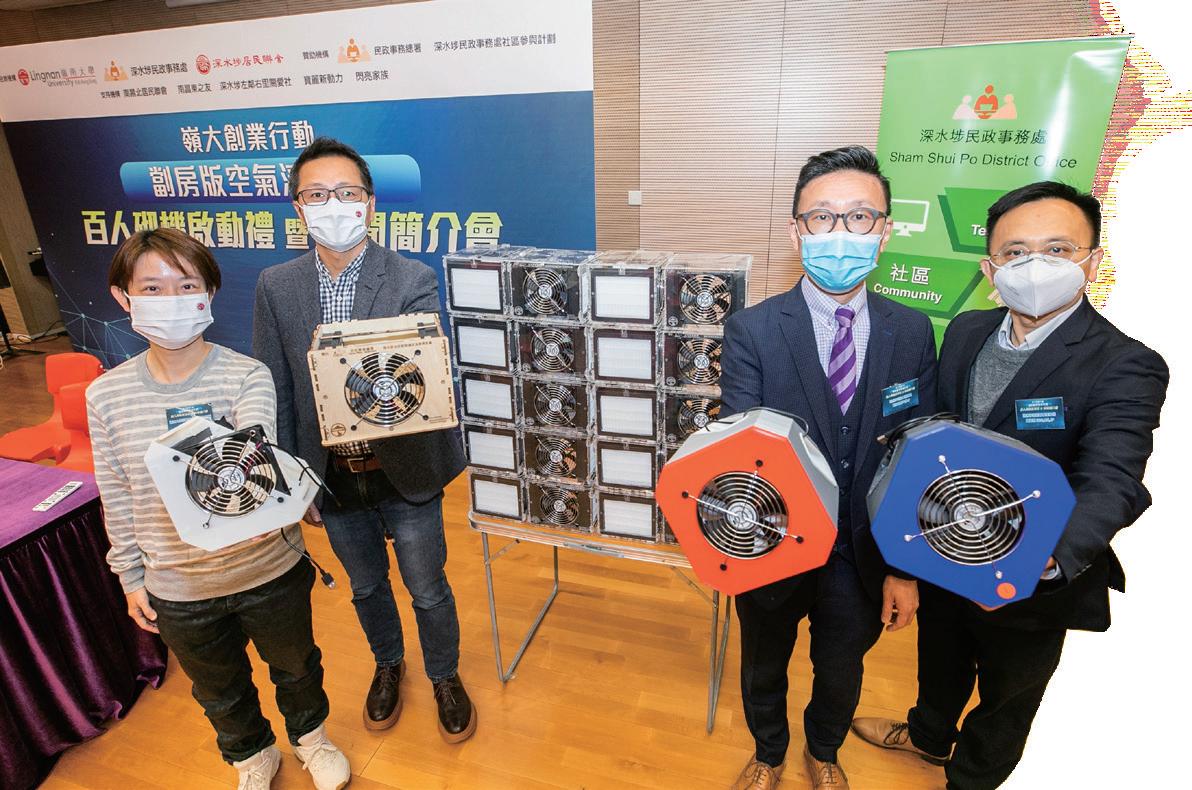
It offers improvement to the air quality of subdivided flats ( 劏房 ) – one of Hong Kong's main social and humanitarian issues – that meets the World Health Organization (WHO) 2021 Global Air Quality Guidelines, said Prof Albert KO, Director of LEI.
The most distinctive features of the air purifier, which addresses the needs of subdivided flat residents, are its efficiency, small size and low power consumption, he added.
In December 2022, the LEI, together with the Sham Shui Po District Office of Home Affairs Department and Sham Shui Po Residents Association Limited , arranged for volunteers to distribute 1,000 sets of the air purifier free to families living in sub-divided units before Christmas.
At the initiative launching event, some 100 subdivided flat residents were invited and assembled the air purifiers under the guidance of LU faculty members and students.
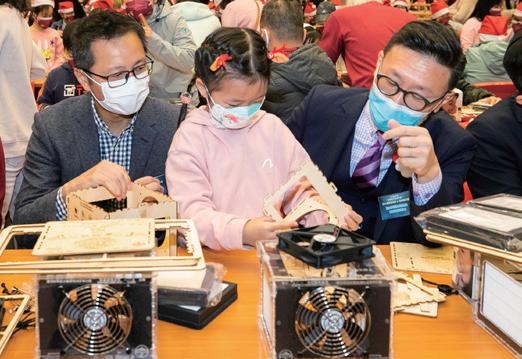
At the InnoTech Expo 2022 in the Hong Kong Convention and Exhibition Centre, LU showcased the collaborative efforts of students, engineers, doctors, and social workers in developing new products and services based on existing technology to solve social problems from an all-round perspective. Organised by the One Hong Kong Foundation with the support of the Ministry of Science and Technology, the event featured many of the country’s latest innovations in fields ranging from automation and medicine to aerospace, materials science and ocean exploration.
Together with the low-cost air purifier, LU has put up four “Humanitarian Technology” projects at the Expo, which contribute to the advancement of the United Nation’s Sustainable Development Goals (SDGs).


China Utility Model Patent
HK Short-term Patent
To safeguard health, while still showing the wearer’s facial expressions and other visual cues. It allows a “panoramic” view of the wearer’s face and a high level of breathability.
In collaboration with the Hong Kong Society for the Deaf, LU has helped distribute more than 10,000 units of this transparent mask to members with hearing impairment, primary school teachers and sign language interpreters in Hong Kong.
China Utility Model Patent
HK Short-term Patent
To improve the safety of both wheelchair users and carers by intelligently predicting the carer’s intentions, leading to better control and positioning of the wheelchair.


To provide a rapid disinfection service for sub-divided flats. The LEI team brought together engineers, medical doctors, social workers and other specialists to come up with a reliable UV technology to disinfect cramped living environment as a free service. This was a crucial step as the pandemic took hold. The project, with funding support from the Hong Kong Jockey Club, had managed to disinfect 1,200 sub-divided flats to lessen the chance of further community outbreaks and improve overall environmental hygiene.
The team also designed a Bluetooth control device to direct the UV germicidal light. This made the invention safe, durable and easy to use. It only takes around 20 minutes to disinfect one unit.
This is a co-ideation and incubation programme launched by Lingnan Entrepreneurship Initiative and Hong Kong Science and Technology Park for early-stage start-up projects. It supports young innovative leaders and aspiring entrepreneurs to transform their ideas into actions for a better society, and enables students to:

• Discover potential business ideas to address community & market needs
• Identify suitable team members and establish a functional team
• Turn their concept into an applicable business plan and minimum viable products
LU’s School of Graduate Studies began running the SmartCity Executive Training (SET) programme in November 2022, which includes a concentration in Environment, Social & Governance (ESG), is offered in partnership with the Smart City Academy of the Smart City Consortium, and the International Chamber of Sustainable Development (ICSD).
The SET Programme, which is aimed at professionals, focusses on turning theoretical knowledge into practical solutions via LU’s Knowledge Transfer Initiatives (KTI). It aims to encourage those planning, designing, and managing Smart Cities to take note of the ESG initiatives that exist as part of the UN’s Sustainable Development Goals (SDGs).
The programme also teaches participants about smart city technologies and concepts like AI, big data, Blockchain, the metaverse, and design thinking. It covers management and strategic skills, the smart economy, and trends in ESG.

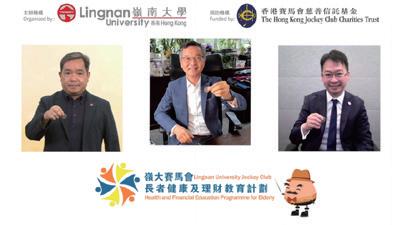
More than 300 programme participants, representatives of partner institutions and friends had joined a kick-off ceremony for the “LU Jockey Club Health and Financial Education Programme for Elderly” earlier in 2022. Funded by The Hong Kong Jockey Club Charities Trust , the three-year programme aims to strengthen and promote older adults’ knowledge of consumer behaviour, financial management skills, and healthcare management by offering them a series of training and inter-generational communication activities.
Officiating guests of the ceremony were Dr Ching-choi LAM, Chairman of the Elderly Commission, Mr Horace LIT, Executive Manager of Charities (Grant Making – Elderly and Family Services) of The Hong Kong Jockey Club and LU’s Vice-President Prof Joshua Ka Ho MOK . “This programme offers practical training in various aspects for the elderly in Tuen Mun, Yuen Long and Tin Shui Wai districts, enhancing their knowledge in these areas to cope with the challenges of the modern world, which is exactly the concept of ‘active ageing’ that we have long been advocating,” Dr Lam said.
As a cross-sectoral collaboration, Lingnan University and BOC Life's Live Young Rewards Program (Live Young), together with Quality HealthCare Medical Services Limited (QHMS) and smart watch brand Garmin , have launched a gerontech-related, theme-based research project. The project encourages older adults, their families, and LU students as gerontech ambassadors to learn about health practices, and the use of health monitoring mobile applications in different age groups. Data will be collected through experiential workshops, smart device and mobile application testing, follow-up questionnaires, focus group interviews, and individual interviews. The project also explores the effectiveness of gerontechnology in improving older adults’ social life and intergenerational harmony.
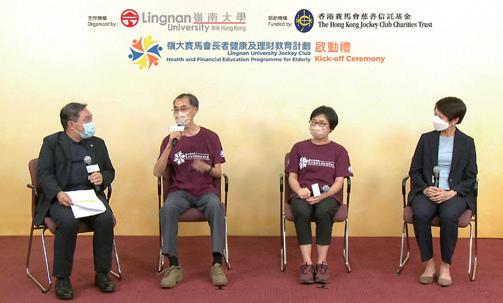
Their first event, Gerontech Health Experience Day, was held in the LU Jockey Club Gerontech-X Lab in August 2022 which extended participants’ knowledge and interest in health management and gerontechnology. Older adults participating in the project were given a smart watch by Live Young. The device is connected to the mobile app to encourage older adults to use gerontechnology in their daily lives. Representatives of QHMS shared professional health tips and taught participants how to monitor their own health by using those smart device and technologies.
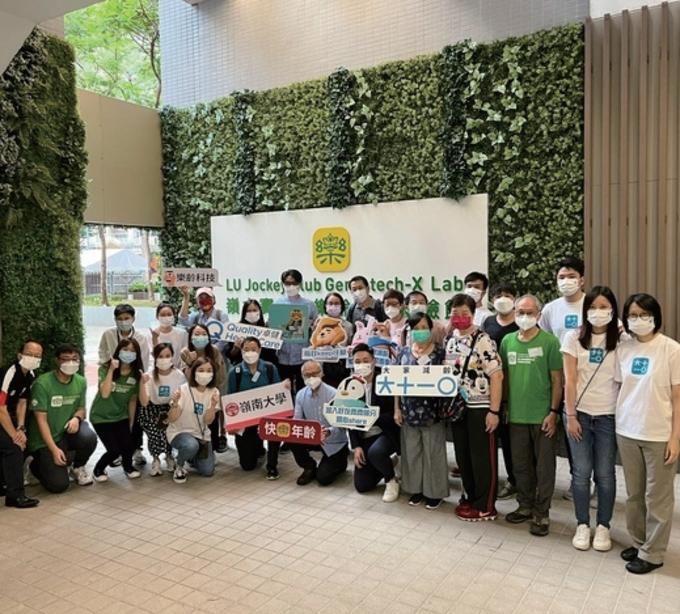

Academic exchanges and global partnerships are an increasingly important part of Lingnan University’s strategic planning. These expanding links with leading institutions around the world are known to foster essential discourse and debate. But when focused on collaboration and research, they can also spark insights and innovations with the potential to be truly transformative.
With that in mind, despite the restrictions arising from COVID, the University has been notably active during 2022 both hosting and participating in a series of high-profile international speaker events.
It has also been working on a number of new agreements with well-regarded partners, thereby paving the way for more joint research projects, workshops, symposiums, and opportunities for overseas placements.
To illustrate the point, at the QS Higher Education Summit: APAC 2022, which took place in November, LU hosted a roundtable discussion on the role of the liberal arts in Industry 4.0 and beyond
This was a chance to emphasise the University’s own strengths, but also to consider how technology is now driving the Fifth Industrial Revolution and to ask what that means for business, the workforce and society at large. In essence, it comes down to contrasting visions of what kind of future we want, whether the relentless rise of automation, robotics and smart manufacturing will continue or if there will be even greater need of well-trained professionals to direct and manage.
Earlier in the year, at another roundtable discussion at the QS Higher Education Summit which examined the possibilities for Hong Kong and China to become “new destination markets”, LU experts shared their views on what it takes to attract undergraduates and research students from overseas.
It is not always easy, particularly at a time of heightened geopolitical tensions, but the event was a chance to discuss everything from scholarship funding to partnerships between institutions, as well as the conjecture that there is a “paradigm shift in the making”.
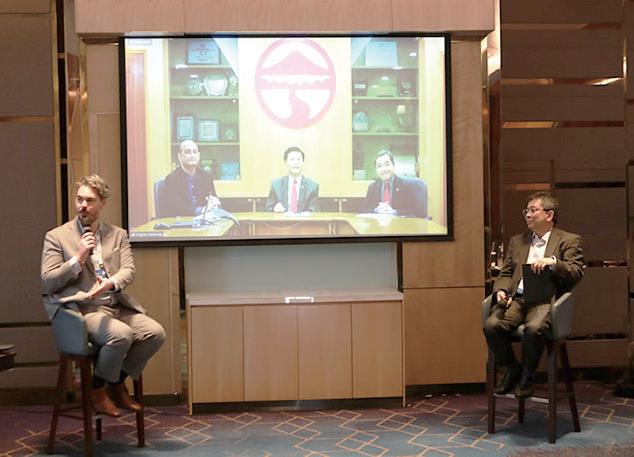
For a THE-LU Liberal Arts Forum in June, the key question was how Asia can forge its own path in this branch of higher education and what steps are needed to cultivate greater appreciation of the humanities in a world where science and technology often seem to hold sway.
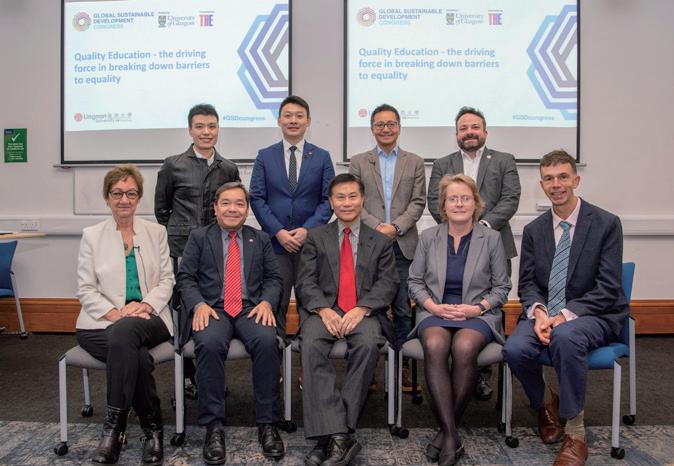
The two-day online gathering allowed a diverse group of international participants to state their case and elucidate the vital role the study of liberal arts still plays in shaping the ideas, aspirations and ethics of modern society.
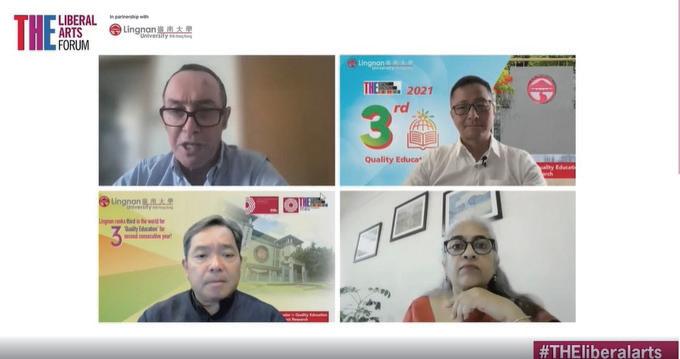
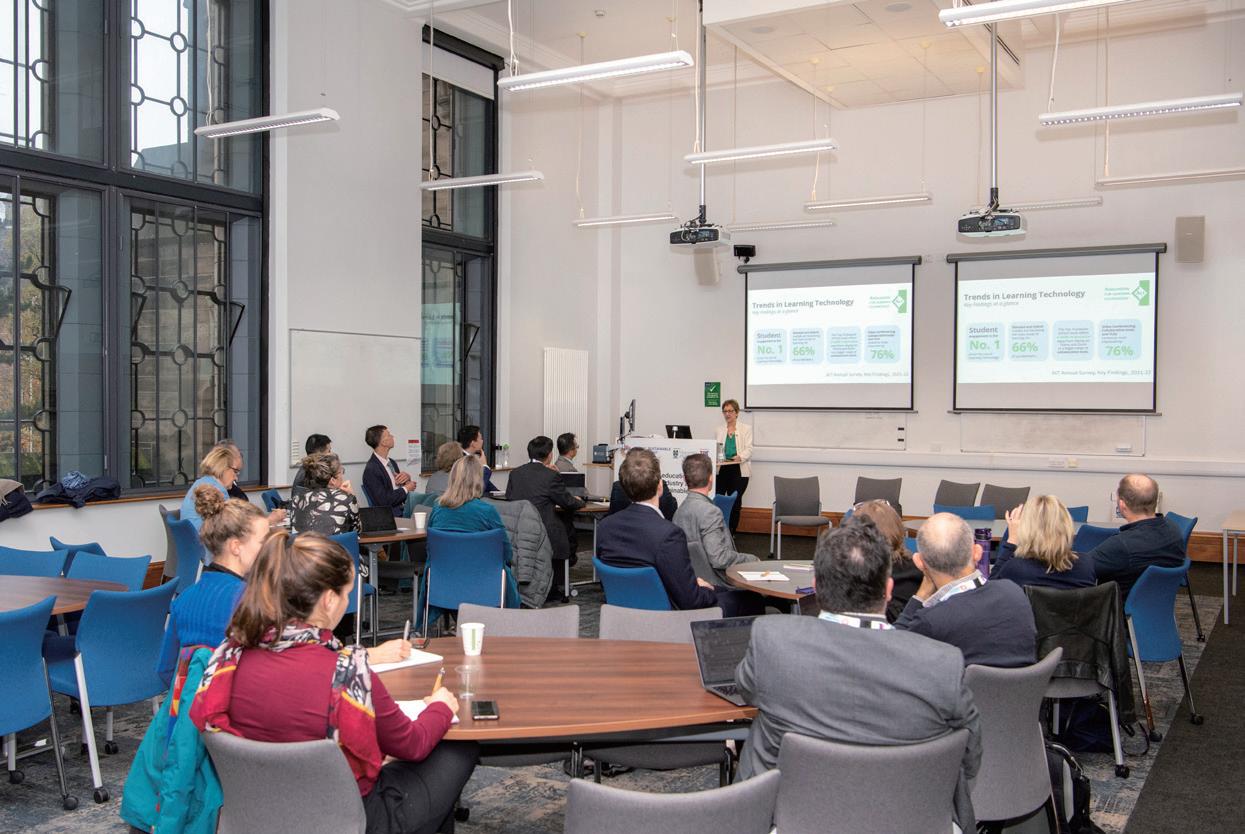
It also served to highlight LU’s standing as a global leader in quality education and high impact research. Confirmation of that comes from being placed in the top three worldwide according to THE Impact Rankings in 2021 and 2022 for “Quality Education”, a category which has added significance because it is also included as number four among the UN’s Sustainable Development Goals.
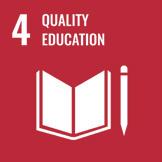
To support those goals, LU also took part in an event which ran alongside a THE SDG Congress at the University of Glasgow in November. High-powered delegates explained how education must be the driving force to break down barriers to equality and create a better future for those who have missed out up to now.

Looking ahead, the University has every intention of continuing to build its global network. A first step is the memorandum of understanding (MOU) recently signed with Durham University, along with ongoing talks about closer collaboration with Norway’s University of Stavanger and forward-thinking partners in Finland.
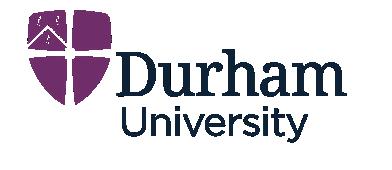
Lingnan University signed a Memorandum of Understanding (MOU) with Durham University in the United Kingdom in November 2022 to increase inter-university cooperation on teaching and learning and research activities.
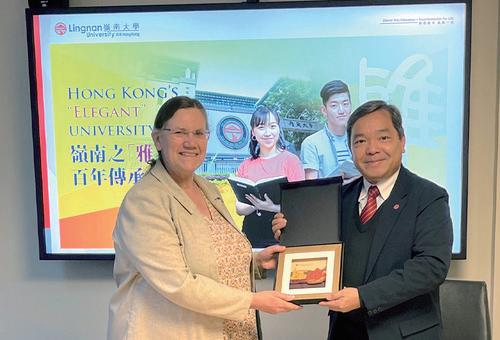


The MOU was signed by Prof Joshua Ka Ho MOK, LU’s Vice-President, and Prof Charlotte CLARKE, Executive Dean of the Faculty of Social Sciences and Health at Durham. Both parties agreed to encourage direct contact and cooperation between their faculty members, departments, institutes, and research centres, as well as to explore the possibility of research collaboration, teaching exchanges, student exchanges and PhD co-tutelles.
In 2021/22, LU has more than 260 partners in 49 countries or regions around the world, offering students and faculty excellent opportunities to exchange and collaborate.
Lingnan University and National Chung Cheng University (CCU) in Taiwan signed a Memorandum of Understanding (MOU) to promote cooperation in education and academic research between the two institutions. At the signing ceremony held virtually earlier in 2022, Prof Joshua Mok Ka Ho MOK, LU’s Vice-President, and Prof Feng-ming HAO, CCU’s Vice-President, signed the MOU for the two institutions.



To further promote collaboration in academic research, CCU’s Center for Innovative Research on Aging Society and LU’s Asia-Pacific Institute of Ageing Studies also signed a MOU to strengthen research and exchanges on ageing care, disability services and community development.
Our Faculty of Business and School of Management of Jinan University (JNU) had signed a Memorandum of Understanding (MoU) on collaborations to foster quality research and nurture the next generation of talent in financial innovation, digital economy, and other leading business and cross disciplinary fields.

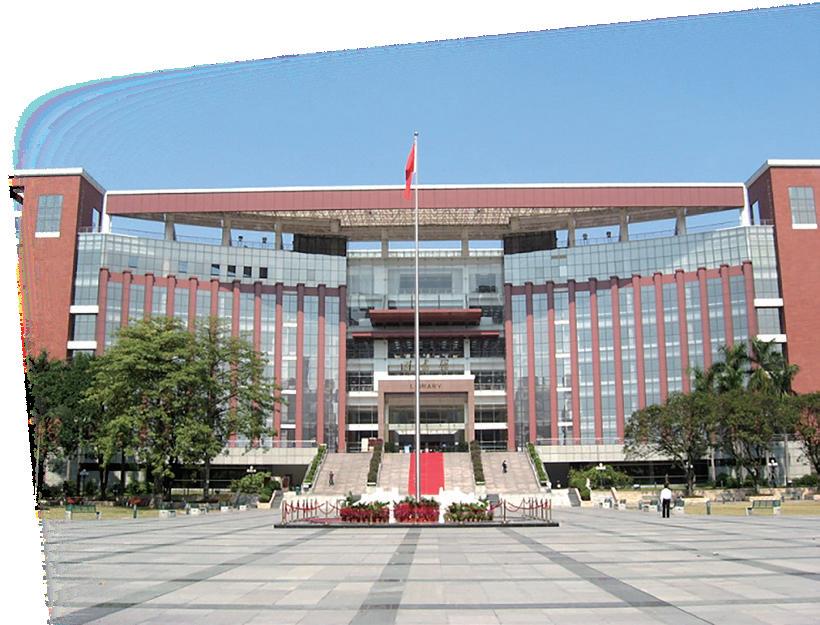
Prof Mingming LENG, LU’s Dean of Faculty of Business, said, “We spare no effort in synergising teaching, research and knowledge transfer. This will be an all-round partnership focusing on the exchange of resources complementing leading edges. I hope that both LU and JNU can take advantage of our collaboration to carry out innovative and impactful research and contribute to the development of the Greater Bay Area.” He added that the two parties will increase collaborations in cutting-edge research and academic programmes at both undergraduate and postgraduate levels.
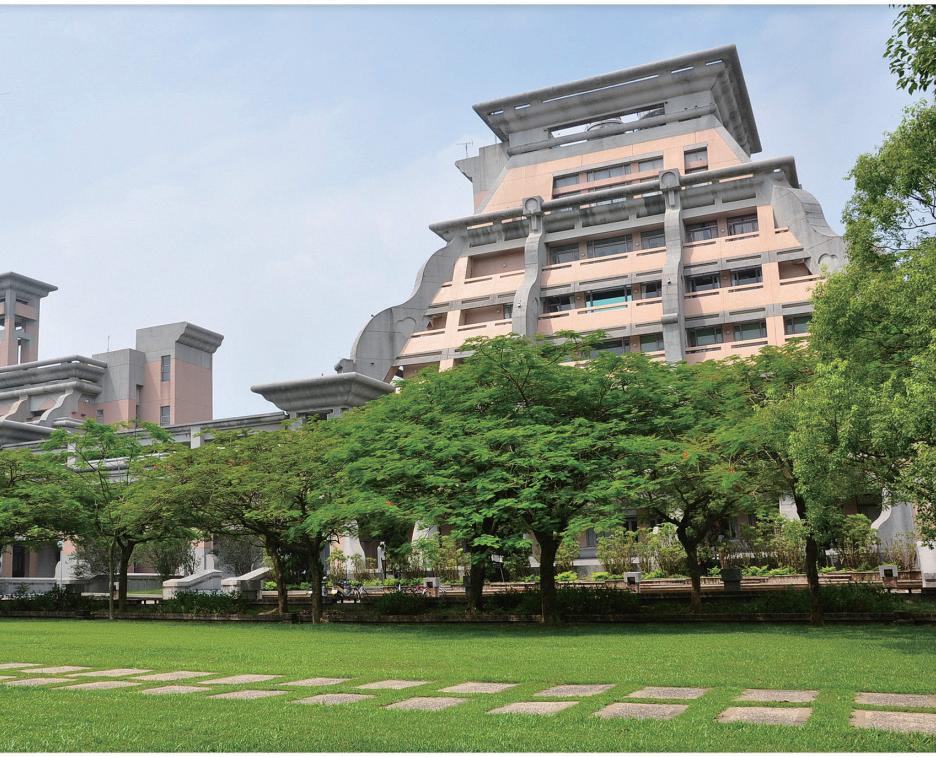 Photo: National Chung Cheng University
Photo: National Chung Cheng University
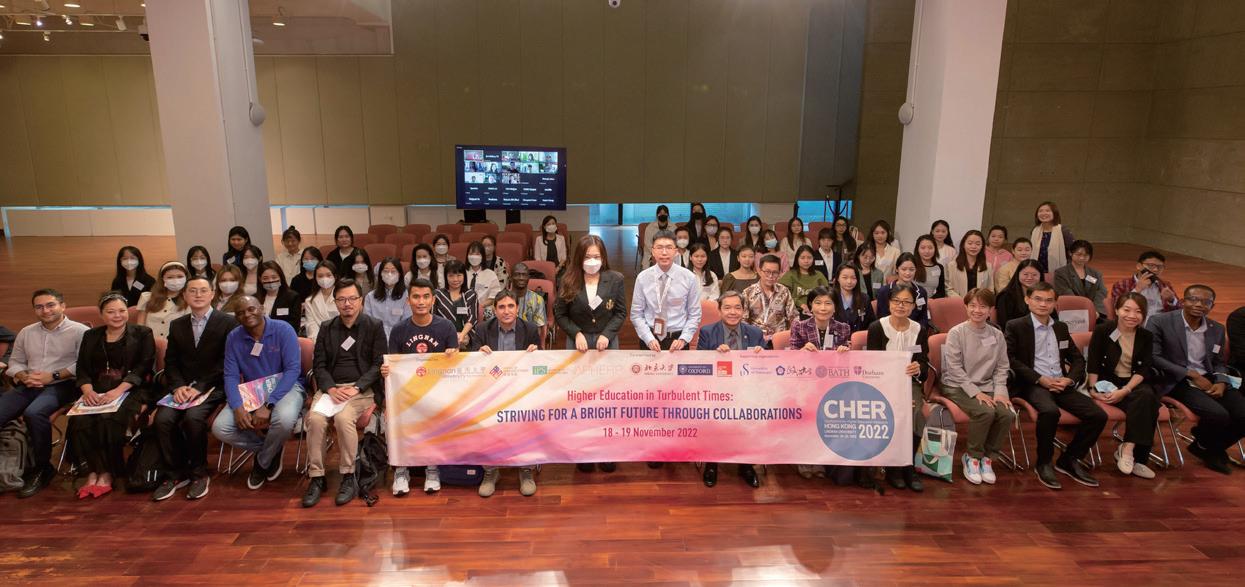
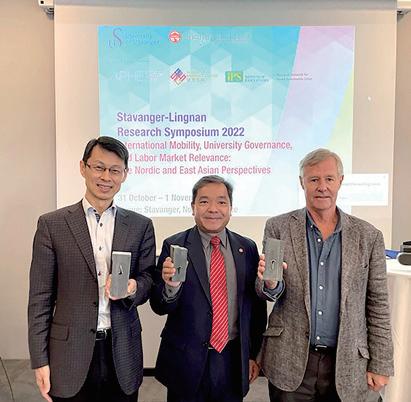
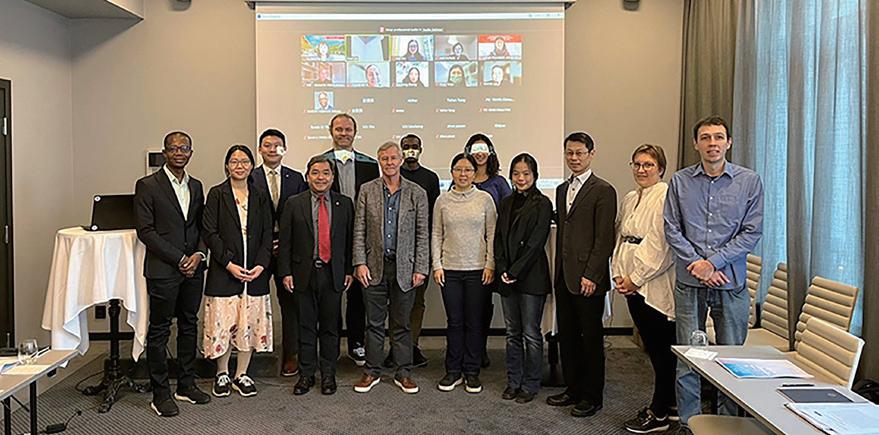
In October and November 2022, Lingnan University and the University of Stavanger (UiS), Norway, successfully co-hosted the Stavanger-Lingnan Research Symposium 2022 titled “International Mobility, University Governance, and Labour Market Relevance: The Nordic and East Asian Perspectives”. The event received support from the Asia Pacific Higher Education Research Partnership (APHERP), the School of Graduate Studies and Institute of Policy Studies of Lingnan University, and UiS Research Network for Smart Sustainable Cities.
The two-day Symposium, held in the hybrid mode in the city centre of Stavanger, welcomed more than 60 onsite and online participants from Norway, Finland, the Netherlands, Hong Kong, mainland China, Macau, the UK, and the US. Four keynote speakers—Prof Hugh LAUDER from Bath University, Prof Joshua Ka Ho MOK from Lingnan University, Prof Bjørn STENSAKER from the University of Oslo, and Prof Yuzhuo CAI from Tampere University shared their research on human capital theory, university graduate employment, higher education governance, and the internationalisation of higher education.
The Conference for Higher Education Research (CHER) - Hong Kong 2022 was jointly hosted by Lingnan University and the Asia Pacific Higher Education Research Partnership (APHERP) in November to provide an international platform for an in-depth discussion of the latest developments and consider what lies ahead, with the theme of “Higher Education in Turbulent Times: Striving for a Bright Future through Collaborations”. This year’s conference also received support from LU’s partner institutions, including Peking University, University of Oxford, University of Stavanger, National Chengchi University, University of Bath, and Durham University.
The conference had attracted notable speakers from Canada, India, Italy, the Netherlands, the United Kingdom, Romania, Malaysia, Thailand, mainland China, Hong Kong and Taiwan, and had around 120 participants joining on-site at the Lingnan University campus and online.

A survey of students in Hong Kong highlighted concerns relating to the efficacy of online teaching. Prof Mok runs through key lessons for universities looking to improve their digital education.
Only 27% of respondents felt satisfied with their online learning experiences during the pandemic while nearly 63% claimed online learning was less effective than face-to-face classes, according to the survey. Nearly 30% of respondents felt dissatisfied.
The negative feedback was an alarm bell for higher education institutions in Hong Kong, forcing a re-examination of their emergency online learning.

According to student survey, factors that had a strong impact on the effectiveness of online learning were:
• IT proficiency of students
• the stability of the internet connection
• in-class interactions
• after-consultancy with instructors
• the availability of class recordings
• appropriate use of class materials
Universities need to invest time and effort into improving students’ digital proficiency to ensure they get more out of their online courses. A lack of effective personal interaction was one of the key criticisms of online learning in the study, highlighting the importance of student and instructor connections. Instructors need to monitor student learning throughout the course to assure quality learning. They need to offer students support, not only from an educational and technical perspective but also meeting their social and psychological needs. Different units across the university should collaborate to co-create environments conducive to student learning. Universities also need to take steps to ensure all students have access to the online classes and materials they need.


In June 2022, “UK-Southeast Asia Partnerships and Exchanges Baseline Research” (PEER), an international project led by Coventry University in the UK and funded by the British Council, and fully supported by Lingnan University as a partner and VicePresident Prof Joshua Ka Ho MOK as a consultant, welcomed global delegates to their first seminar and roundtable policy dialogue, which focused on inclusive, equal, and sustainable higher education partnerships.
The forum with a theme of “We cannot take inclusive and equal partnerships for granted” attracted over 450 international participants online and onsite at Chulalongkorn University, Thailand’s first established university. Roundtable panellists included policy makers, university leaders, regional experts from the Association of Southeast Asian Nations (ASEAN), alumni and researchers, who talked about creating inclusive and equal future partnerships. Prof Mok, being part of the research team examining partnerships for research and innovation, highlighted the importance of mutual trust and respect when fostering deep collaboration. Treating Asian institutions as equal partners when embarking research collaboration is core to the success of productive partnerships.
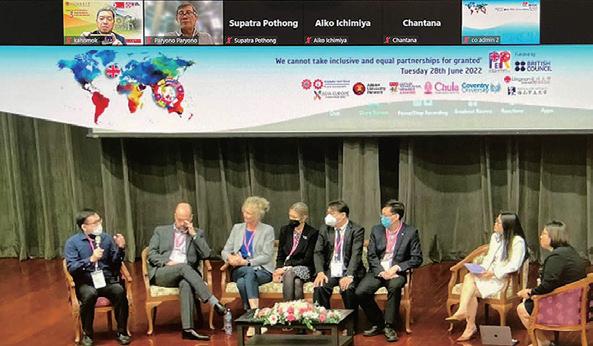
Lingnan University successfully hosted an International Symposium on Social Policy and Social Services Challenges in the Greater Bay Area (GBA) in June 2022 to discuss the latest research and practices concerning social policy and social services challenges in the GBA. The Symposium was jointly organised by the Asia Pacific Institute of Ageing Studies and Lingnan University-South China University of Technology Joint Research Centre for Greater Bay Area Social Policy and Governance, and was also funded by University Grants Committee and supported by the School of Graduate Studies, Institute of Policy Studies, and Department of Sociology and Social Policy, Lingnan University. Over 60 scholars and participants joined from mainland China, Hong Kong, Macau, Singapore and other regions.

Earlier in 2022, Chancheng District in mainland China held a finance conference where district leaders were present at the official opening ceremony for the Guangdong-Hong Kong-Macau Greater Bay Area Insurance Development Research Centre and the Guangdong-Hong Kong-Macau Greater Bay Area Insurance Talent Training Base
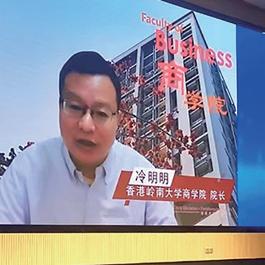
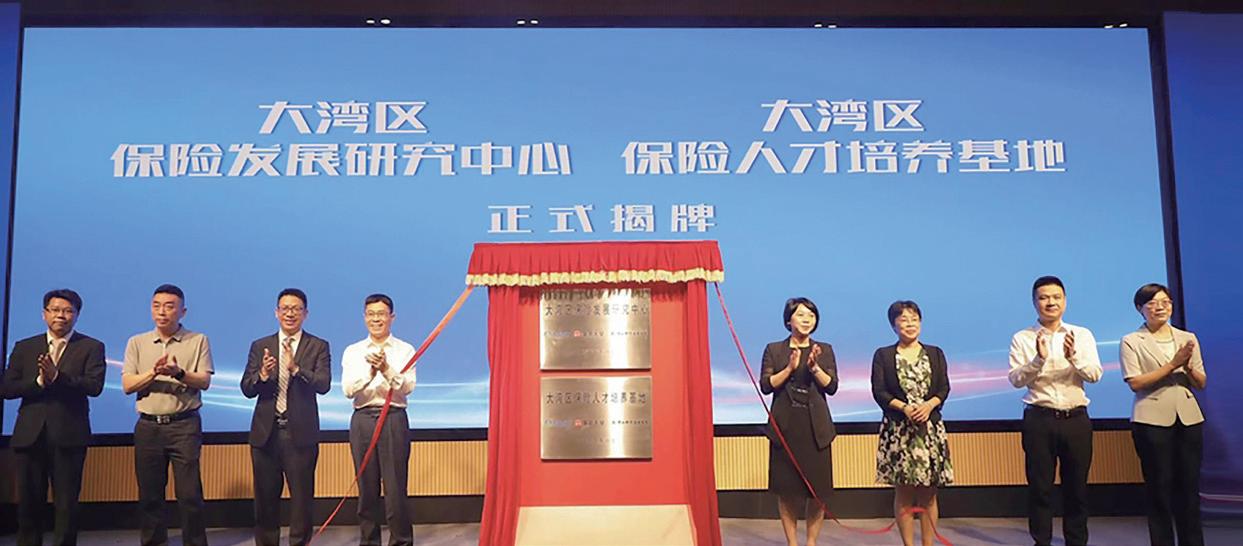
The goal of both initiatives is to support innovative research in the fields of finance and insurance. The initiatives were jointly developed by Lingnan University, Foshan University, and China Taiping Insurance Holdings
The establishment confirms Lingnan University’s mission to nurture high-end talent, promote cutting-edge research, and contribute to the rapid development of the Greater Bay Area.
1. China and Higher Education 2022: (Re)imagining Kindness in Times of Conflict (30 Nov - 2 Dec 2022)
2. Lecture series on “Castle Peak: Road of Fire and Dye” (NovDec 2022)
3. On-line Joint Seminar with HKU and NUS (Sep-Dec 2022)
4. Joint Webinar Series: Media and Creative Industries in East Asia (Sep 2021 - Dec 2022)
5. Academic Lecture by Eminent Scholar: The Crisis of Globalization and China’s Strategic Turn to Ecological Civilization (30 Nov 2022)
6. Business Sustainability Seminar Series: Sustainable Lifestyle (10 Nov 2022)
7. Social Governance and social Policy in Mega City (6 Nov 2022)
8. The 2nd International Academic Conference on Global Bay Area Development: Regional Cooperation and Institutional Innovation (5 Nov 2022)
9. Open Lecture for Hong Kong Fintech Week 2022: Blockchain, Decentralized Finance (DeFi), & Application of Smart Contracts (4 Nov 2022)
10. Peking-Lingnan-Wisconsin Education Forum: Rethinking International Higher Education: COVID-19 Pandemic and New Geopolitics (21 Oct 2022)
11. Translatability/Transmediality: Chinese Poetry in/and the World (7-8 Oct 2022)
12. The Chinese Economy Series: The Chinese Economy in the Post-COVID 19 Era (21 Sep 2022)
13. What is Left of Technology? Contemporary Asia-Pacific Visual Cultures Joint Webinar Series (19 Sep 2022)
14. 經學講會總第十場:香港經學的現狀與前瞻 (27 Aug 2022)
15. HKIBS Seminar: Sustainable Economy (26 Aug 2022)
16. The Ninth South South Forum on Sustainability: The Collapse of Modern Civilization and the Future of Humanity (Jul-Aug 2022)
17. 2022 South South Dialogue on Sustainability: African People’s Struggles for Liberation (Mar-Aug 2022)
18. Lingnan-Wuhan Universities Workshop (Industrial Organization and Applied Economics) (21 Jun 2022)
19. Symposium on History of Translation in the (modern-day) Greater Bay Area (16-17 Jun 2022)
20. Talk Series: Exploring New Opportunities in the Greater Bay Area 2022 (2-9 Jun 2022)
21. Student/Graduate Agency and Self-formation: A Hong Kong Symposium (6-7 Jun 2022)
22. Digital Intimacy: Young Women and Social Transformation in Asia (Jan-Jun 2022)
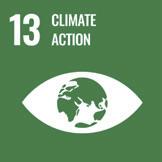
Carbon Neutral Action, an Office of Service-Learning (OSL) and Science Unit project, has been granted over HK$1.3 million by the Government’s Sustainable Development Fund

The project recruits and trains a group of “Low Carbon Ambassadors” through the network of LU and its Elder Academy to promote intergenerational collaboration, and raise awareness, understanding, and interest in low carbon living and sustainable development in a series of activities. Competitions for energy saving, waste reduction and water saving will be organised on campus.
The project will benefit over 4,180 participants directly, and 3,000 more indirectly.
Prof Albert KO, Director of OSL says, adding that target participants include university and secondary school students and their families, and the general public in the west New Territories districts. “We see this Sustainable Development Fund as an endorsement of LU’s vision of incorporating STEM education in a liberal arts context for sustainable social impact. The award also affirms LU’s motto ‘Education for Service’.”
Activities of Carbon Neutral Action include:
Low Carbon Ambassador Training Program
Low Carbon Recipe Competition
Mobile Exhibition on Low Carbon Living (Campus)
Upcycling Workshops
Green Community Tours Green Community Exploration
Workshops
Low Carbon Student Hostels & Campus Challenge
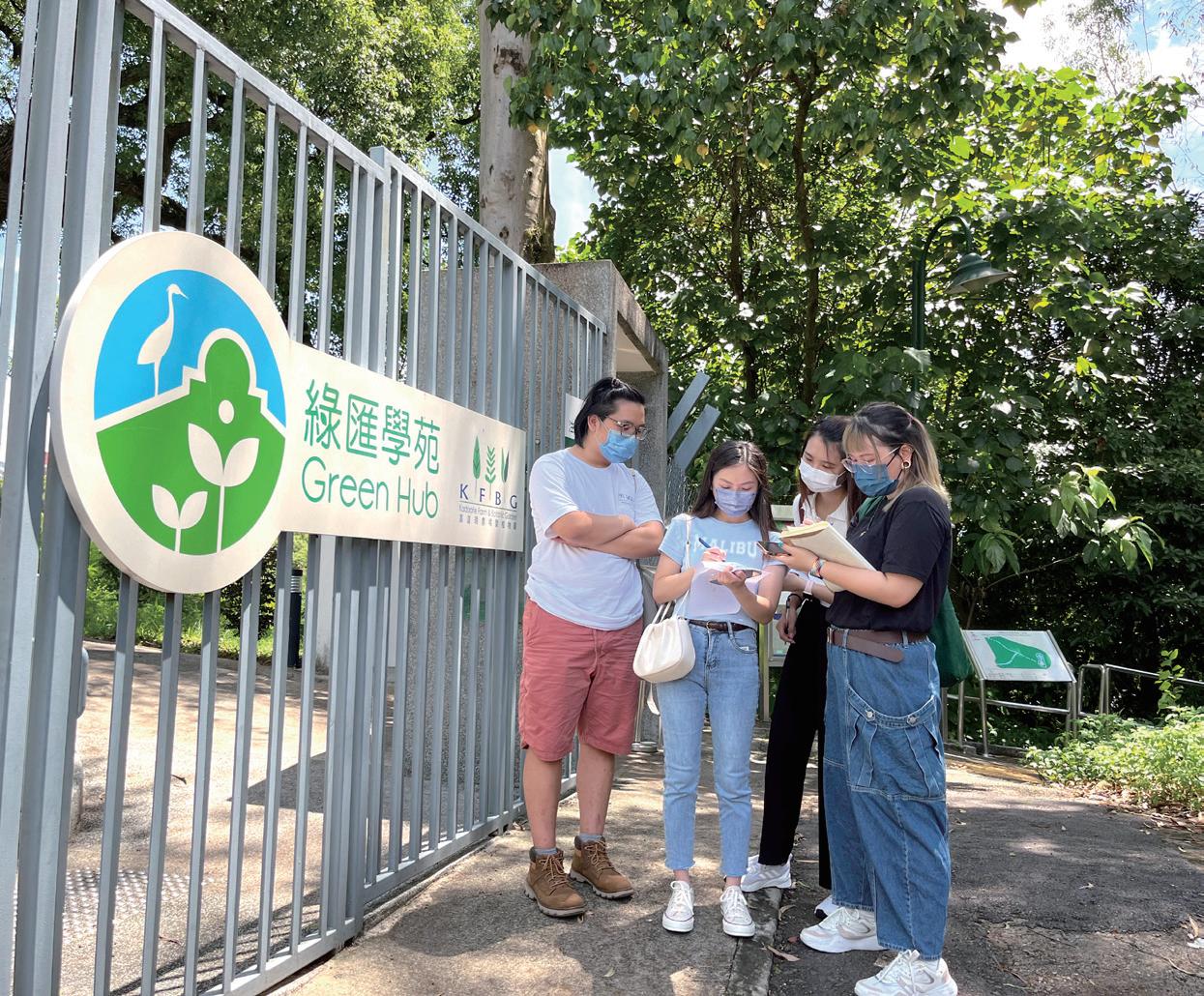
Community Mobile Exhibition cum Low Carbon Living Award Scheme
Low Carbon Bazaar cum Low Carbon Ambassador Graduation Ceremony
The Department of Computing and Decision Sciences (CDS) has secured HK$1.13 million from the Gifted Education Fund of the Education Bureau to support delivering AI education to gifted primary kids.
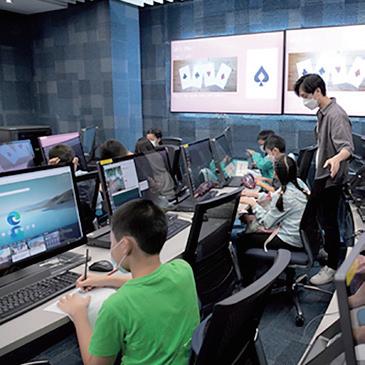
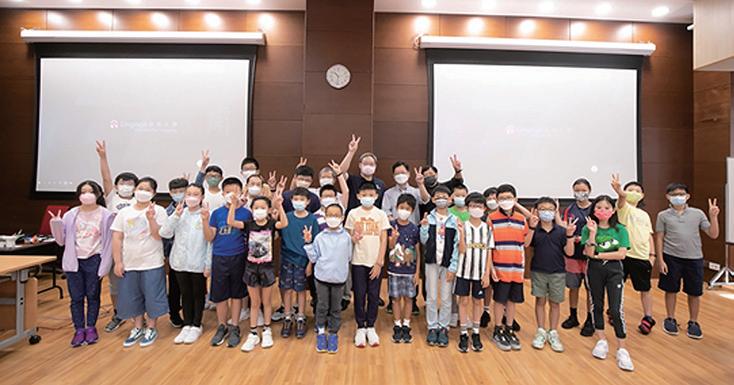


Children today are growing up in a world surrounded by artificial intelligence (AI): algorithms determine the information they see, help choose the videos they watch, and shape the way they learn to speak. Children can be inspired to help shape their future by better understanding how algorithms are created and how they affect the society. AI education has been widely promoted and supported in many countries.
Prof Wing Kuen SEE-TO, Associate Professor of the Department is leading a programme, which to the best of our knowledge is the first in Hong Kong, that aims to equip gifted students at the primary level with the knowledge and skills of developing AI models, and develop problem-solving and critical thinking skills for personal growth and development. The programme is highly popular. With 30 places available, in this school year, we received 414 applicants from 135 different primary schools, compared to 256 applicants from 83 primary schools last year.
To kick off the programme, a grand opening ceremony was held earlier in 2022 on campus. Students were accompanied by their parents to attend the ceremony event. We were delighted to invite Mr Willy CK CHOI, Senior Project Manager (Gifted Education) from the Education Bureau, Prof Joshua Ka Ho MOK, Vice-President and Lam Man Tsan Chair Professor of Comparative Policy, Prof Man Leung WONG, Department Head of CDS and Prof See-To to attend the ceremony event.
Two Dimensions of Meaning: Similarity and Contiguity in Metaphor and Metonymy, Language, Culture, and Ecology
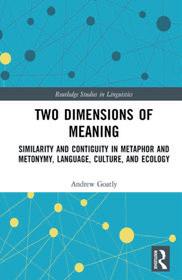
Author
Andrew GOATLY Department of English
China, Taiwan, and International Sporting Events: Face-Off in Cross-Strait Relations
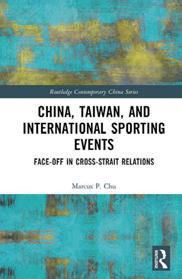
Author
Pok CHU
Department of Government and International Affairs
Political Ecologies of Landscape: Governing Urban Transformations in Penang
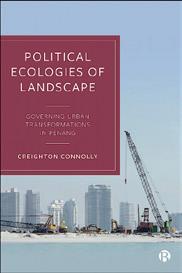
Author
Creighton CONNOLLY School of Graduate Studies
The Socioeconomics of Nationalism in China: Historical and Contemporary Perspectives
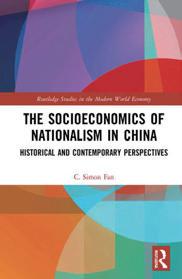
Author
Simon Cheng Ze FAN Department of Economics
採石與攻玉 : 蔡宗齊自選集
Author
Zong-qi CAI
Department of Chinese
香港街市 : 日常建築裏的城市脈絡 (1842–1981)
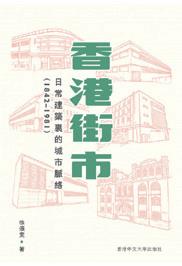
Author
Carmen Chung Man TSUI
Department of History
Chinese Texts in the World
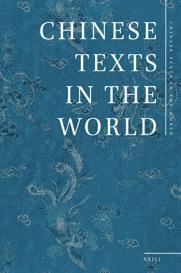
Editors
Zong-qi CAI

Department of Chinese
YUAN Xingpei
